The Indo-American Press Club (IAPC), the largest organization representing media professionals of Indian origin in North America, has announced the awardees who will honored at the 10th annual International Media Conference from May 3 to May 5, 2025 at The Woodlands Inn and Resort in Poconos, Pennsylvania.
The Media Conference will have participation from renowned journalists, media professionals, writers, and community leaders for discussions on media excellence, innovation, and global collaboration.
Marking a decade of fostering connections among media professionals, the conference will provide a vital platform for networking, knowledge-sharing, and building meaningful collaborations. Attendees can expect insightful panel discussions, keynote speeches, and interactive sessions led by media experts, offering valuable perspectives on the evolving world of journalism.
With digital transformation and press freedom remaining critical global issues, the conference will facilitate discussions on key challenges and potential solutions shaping the future of journalism.
Dr. Satheesh Kathula. Lifetime Achievement Award 2025
Dr. Satheesh Kathula, a board-certified hematologist and oncologist from Dayton, Ohio, practicing Medicine for over two decades, is the President of the American Association of Physicians of Indian Origin (AAPI).
Dr. Kathula is a clinical professor of medicine at Wright State University-Boonshoft School of Medicine, Dayton, Ohio, and is a Diplomate of the American Board of Lifestyle Medicine. He has authored several papers and articles in medical journals and has authored a book, describing his journey as an immigrant physician. The book is being released today at our Conference.
Dr. Kathula has dedicated his career to treating patients and actively supporting various nonprofit organizations. He strongly believes that acquiring new knowledge is crucial for professionals, especially physicians, with a changing healthcare environment. Recently, Dr. Kathula acquired a certificate from Stanford University in Artificial Intelligence in Healthcare. He graduated in May 2024 from Harvard University completing a “Global Healthcare Leaders Program.”
Dr. Kathula was the President and founding member of the Association of Indian Physicians from Ohio, President of the Miami Valley Association of Physicians of Indian Origin as well as the President of the ATMGUSA (Association of Telugu Medical Graduates in USA). In addition, he has worked with the Ohio State Medical Association on various issues. He has been actively involved in community service locally, nationally, and internationally for the last two decades. He was awarded ‘Man of the Year – 2018’ by the Leukemia and Lymphoma Society.
Not satisfied with his personal and professional achievements, Dr. Kathula has been active in the Indian community. With the objective of enabling Physicians of Indian Origin to give back to their motherland, India, he organized the Global Healthcare Summit is New Delhi, India in October this year.
Dr Kathula’s love for his motherland has manifested in him setting up humanitarian and medical projects in India. The most important of them is establishing a state-of-the-art pharmacy college in Warangal in Telangana, where he grew up. Named the Pathfinder Institute of Pharmacy and Educational Research (PIPER), the non-profit with Dr Kathula as the Chairman, provides quality education and has already graduated over 1,000 students who are now working in different parts of India and abroad. He conducted several medical camps close to his native place and donated a defibrillator, water purification plant, and library to his native place.
In 2024, Dr. Kathula was honored with the Inspirational Award given by Raising Awareness of Youth with Autism (RAYWA) Foundation for his contributions to the country, particularly in the field of healthcare, and his
Anju Vallabhaneni – Lifetime Achievement Award 2025
Anju Vallabhaneni is a highly committed leader with extensive expertise in global delivery and a deep passion for community service. He is the National President of ITServe Alliance, a non-profit association representing over 2,500 IT companies across the United States.
Anju’s impressive academic background includes an Engineering degree and an MBA. His career spans more than 25 years, during which he has served as President and CEO of several companies in North America, Latin America, and India.
His leadership and strategic vision have been instrumental in managing businesses with revenues ranging from $5 million to over $100 million.
In 2002, Anju founded United Software Group (USG), a company that has seen tremendous growth under his guidance. Over the past two decades, USG has expanded to employ over 2,000 professionals worldwide. The company’s success has been recognized on a national scale; Inc. 5000 listed USG among America’s Fastest-Growing Private Companies, and it was ranked #107 in the US-Midwest region in 2024.
Anju’s dedication extends beyond his professional achievements. He is deeply involved in philanthropic efforts, actively supporting over ten non-profit organizations. His commitment to giving back to the community highlights his belief in the importance of social responsibility.
Beyond his professional and philanthropic endeavors, Anju is also a seasoned athlete. He has completed more than 25 marathons, demonstrating his discipline, perseverance, and dedication in both his personal and professional life.
Anju is also a seasoned athlete, having completed over 25 marathons. Anju Vallabhaneni’s multifaceted career and contributions make him a deserving recipient of the Lifetime Achievement Award 2025, a testament to his enduring impact on the IT industry and his unwavering commitment to community service and personal excellence.
Prakash A. Shah. Lifetime Achievement Award 2025
Prakash Shah, Chairman and Chief Executive of First Growth Mortgage and Realty Group, is the current President of the Global Organization for the People of Indian Origin (GOPIO) International. He is a Founding Life Member of GOPIO, Asian American Hotel Owner’s Association (AAHOA ), National Federation of Indian Association and the New York City based India Chamber of Commerce of America, which he led for 15 Years, He is a former Chairman of New Jersey Development Authority and President Clinton’s Appointee to the Board of $108 Million Southern Africa Fund for 12 Countries of Southern Africa and Chair of the Board’s Investment Committee,
Prakash Shah served as the Chairman of New Jersey Development Authority under Governors Florio and Whitman. Mr. Shah was the Global Ambassador of GOPIO and later on, he was the Convener of the GOPIO Convention 2024 in New Jersey.
Mr. Shah, a well-respected leader in the Indian diaspora community, has more than 45 years of experience in the areas of mortgage banking, international investment banking, venture capital, financial management, computer systems and management sciences. Prior to founding First Growth, a financial company, Mr. Shah was concurrently Managing Directo of Asian Oceanic Group (a merchant banking group based in New York, Hong Kong and Singapore). Mr. Shah was Vice President of American Express Bank Ltd. and was responsible for the strategic planning and management information systems departments.
Mr. Shah was elected as a Hillary Clinton Delegate to the Democratic National Convention. Mr. Shah received a B.S.M.E. degree from the University of Baroda (India) in 1967, an M.S. degree in Management Sciences from Stevens Institute of Technology in 1969, and in 1971, completed course work for a Ph.D. at New York University. Mr. Shah holds Real Estate and Title Insurance Producer Licenses and is a Certified Hotel Administrator (CHA) and Certified Hotel Owner (CHO).
Dr. Vemuri S Murthy, MD, MS, FAHA, FICS. Lifetime Achievement Award 2025
Dr. Vemuri S. Murthy is an alumnus of Guntur Medical College and All India Institute of Medical Sciences, New Delhi, India (General Surgery). A former Chicago Anesthesiologist (and Department Chairman) for over thirty years, he is currently an Associate Professor (Adjunct) in the Department of Emergency Medicine at the University of Illinois College of Medicine in Chicago, Illinois, USA.
Dr. Murthy introduced the resuscitation training model for Indian Medical Colleges at Dr.NTR University of Health Sciences in 2012. He has been affiliated with the American Heart Association (AHA) for over thirty years in various capacities, such as Member of the International Committee, National Faculty and Advisor to AHA International Training Centers in India.
Dr. Murthy is a visiting professor at various Indian medical institutes, such as the All India Institute of Medical Sciences.He chaired many Resuscitation and Emergency Medical Care Conferences in India, AHA ReSS sessions program in the USA, lectured at acclaimed US Medical Universities and authored resuscitation-related Journal articles and Cardiology book chapters. He is the co-investigator of a ground-breaking Cardiac Arrest Registry in India, “Warangal Area Cardiac Arrest Registry”.
Dr. Murthy founded Chicago Medical Society’s Community CPR Project SMILE (Saving More Illinois Lives through Education) in 2011. As an Advisor to the Odisha State Government (Health and Family Welfare), he initiated India’s first State Governmental community CPR training project in Odisha in 2023. He also founded the first Indo-US Community Health and CPR Training Center at the National India Hub, Schaumburg, Illinois, USA (2024).
Dr. Murthy, a past President of the Chicago Medical Society and Indian American Medical Association (Illinois), has received several prestigious national and international awards including two Lifetime Achievement Awards and a Medal of US Congress as “Global Champion of Resuscitation” for his professional and community service contributions in the USA and India. He has been contributing to Indo-US News media articles and videos raising awareness of Heart disease and Cardiac Arrests among Indians and Indian diaspora for over two decades.
Sam Maddula. Lifetime Achievement Award 2025
Sam Maddula, Founder & CEO of Bank’s Apothecary Specialty Pharmacy, is an esteemed leader, entrepreneur, and committed philanthropist. His life transformed dramatically when his parents discovered an Eye Camp set up by the Eye Foundation of America (EFA) in 1987 in Andhra Pradesh. This camp enabled him to overcome legal blindness and poverty, changing his life trajectory from darkness to light.
After earning his doctorate in pharmaceutical studies from Rutgers University, Maddula founded a specialty pharmacy in 2010, focusing on mental health and substance disorders. His leadership propelled Bank’s Apothecary Specialty Pharmacy to generate $350 million in annual revenue, becoming the largest independently held behavioral health specialty pharmacy with operations in 16 states.
With over 15 years of experience driving growth and innovation in healthcare and specialty pharmacy, Maddula’s expertise spans business, medicine, and philanthropy. His ventures aim to improve lives through healthcare innovation and support both for-profit and non-profit initiatives. He established the Maddula Foundation, contributing significantly to healthcare and educational initiatives for underserved communities.
Maddula serves on the Executive Advisory Council Board at the University of Washington School of Pharmacy, the Board of Directors at Liguori Academy, and the Eye Foundation of America. He is a renowned speaker on healthcare, philanthropy, and leadership, with two decades of experience as a pharmacist, clinician, and CEO. Maddula mentors aspiring pharmacists and continues to advocate for a more equitable society through various non-profits and civic organizations.
A passionate philanthropist, Maddula has contributed significantly to the Eye Foundation of America and mentors the next generation of leaders. His commitment to giving back is evident in his active involvement in community service and advocacy for societal change.
Madhavan B. Nair. Lifetime Achievement Award 2025
Madhavan B. Nair (MBN) is a Chartered Financial Consultant and esteemed community leader, renowned for his dedication to public service, cultural involvement, and philanthropy. Based in New Jersey, he has long committed himself to advancing the well-being of the Indian-American community through various leadership roles and grassroots initiatives.
Professionally, Mr. Nair is the Principal and owner of MBN Insurance & Financial Services Inc., where he has built a strong reputation for trust, integrity, and service. His entrepreneurial career provided a solid foundation for his broader involvement in community development.
Mr. Nair is the Founder and Patron of the North American Malayalee Association of Malayalees (NAMAM), established in 2010 with the objectives of supporting and uplifting Indian culture and heritage among Indian immigrants in the USA. From 2018 to 2020, he served as President of FOKANA (Federation of Kerala Associations in North America), extending his leadership both across North America and internationally. Under his stewardship, FOKANA’s relief efforts during the COVID-19 pandemic and the Kerala floods received widespread appreciation.
In 2017, Mr. Nair established the MBN Foundation as the principal vehicle for his philanthropy. Upon retiring from full-time business in 2025, he dedicated himself entirely to advancing its mission. Today, the Foundation is devoted to nurturing student skill development and championing cancer-prevention initiatives—addressing urgent needs in education and healthcare to deliver lasting impact.
In 2023, Mr. Nair published two essay collections—’Sunlit Signs’ (in English) and ‘Veyil Kaazhchakal’ (in Malayalam)—in which he reflects on political developments, pivotal historical events, and pressing global affairs.
Leveraging his professional achievements and unwavering commitment to social causes, Mr. Nair has firmly established himself as a distinguished and influential leader within both the Indian American community and the larger society.
Rohit Vyas — Lifetime Achievement Award 2025
Rohit Vyas is an acclaimed documentary filmmaker and a veteran international broadcast journalist whose distinguished career spans over four decades across television, print, and documentary media. As the former News Director, Senior Vice President, and Principal Nightly News Anchor at TV ASIA (USA), he played a pivotal role in shaping the voice of one of the most influential South Asian networks in North America.
Prior to that, he served as News Director and Principal Anchor for Vision of Asia News, CH 47, delivering trusted news to the New York Tri-State area. In addition to his editorial leadership, Rohit Vyas serves as Chief Advisor to ITV Gold (USA), continuing to guide the network’s journalistic and programming strategy.
His editorial footprint extends to print journalism, where he was the Editor of several publications, including the International Observer, a newsweekly dedicated to United Nations affairs and global diplomacy. A respected figure in international media circles, he is a long-standing member of the United Nations Correspondents Association (for over 40 years) and a former member of the White House Traveling Media Delegation, covering pivotal moments and global summits alongside world leaders.
His commitment to public service and journalistic integrity earned him a place on the Asian American Pacific Advisory Council under New Jersey Governor Christine Whitman. His contributions have been honored by the New Jersey State Assembly, the Nassau County Executive of Long Island, New York, and numerous civic and professional organizations nationwide, celebrating his legacy of impactful journalism and unwavering service to the community.
An objective storyteller at heart, Rohit Vyas continues to create thought-provoking documentaries that shed light on diaspora narratives, international affairs, and pressing global issues.
Since its inception in 2013, the Indo-American Press Club has become a leading voice for Indian-origin journalists in North America. With active chapters in multiple cities—including Alberta, Atlanta, Connecticut, Dallas, Houston, New Jersey, New York, Niagara, Philadelphia, Toronto, Vancouver, and Washington, DC—the organization continues to champion press freedom, journalistic integrity, and professional development.
Through annual conferences, networking events, and training programs, IAPC has played a key role in advocating for ethical journalism while strengthening the connection between Indian American media professionals and mainstream journalism.
As the media landscape continues to change, this conference will serve as a critical forum for innovation, ethical discourse, and collaboration, ensuring that journalists remain at the forefront of truth, integrity, and impactful storytelling.
For details on registration, participation, and sponsorship opportunities, visit the official IAPC website at www.indoamericanpressclub.com

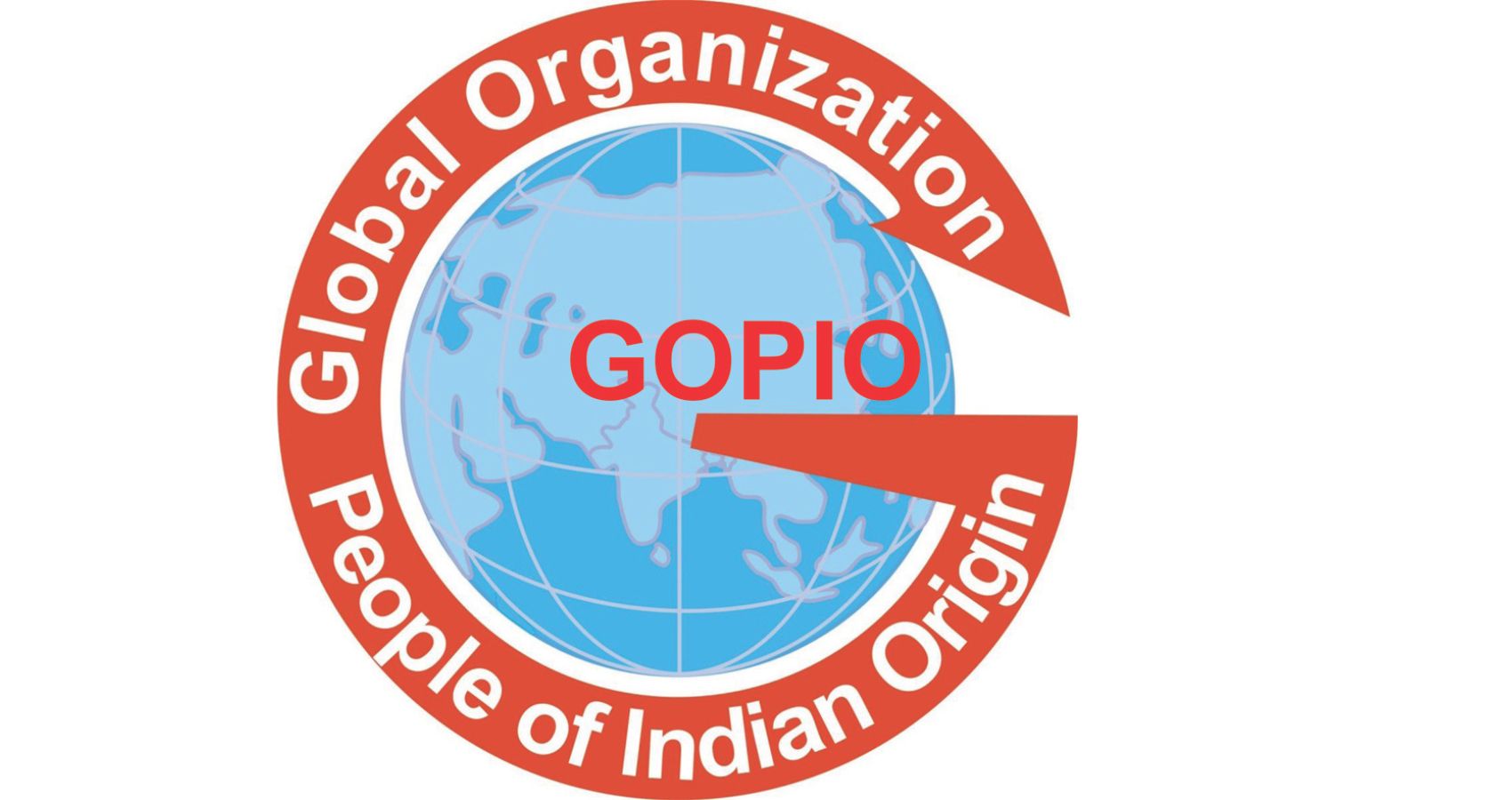
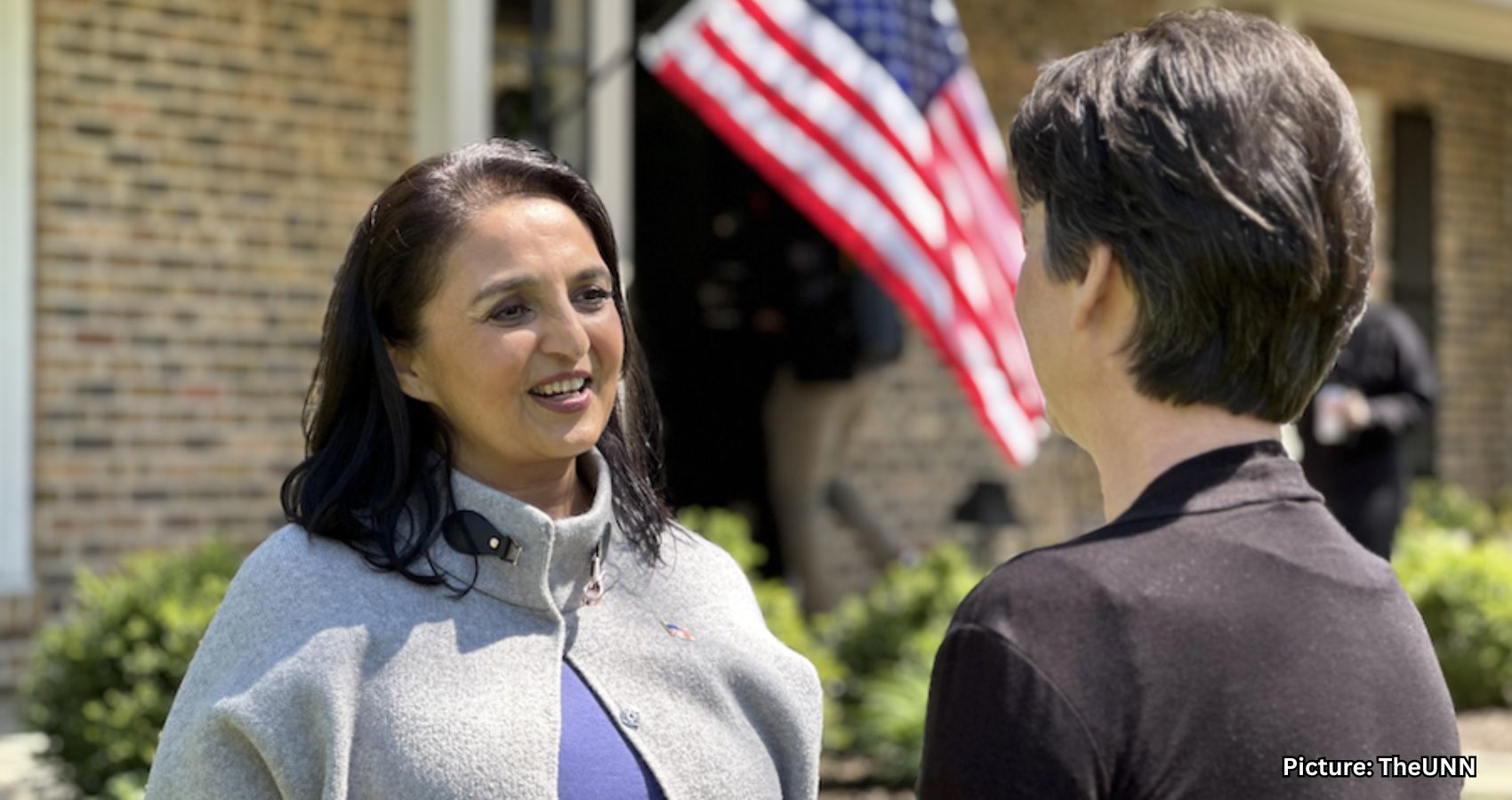
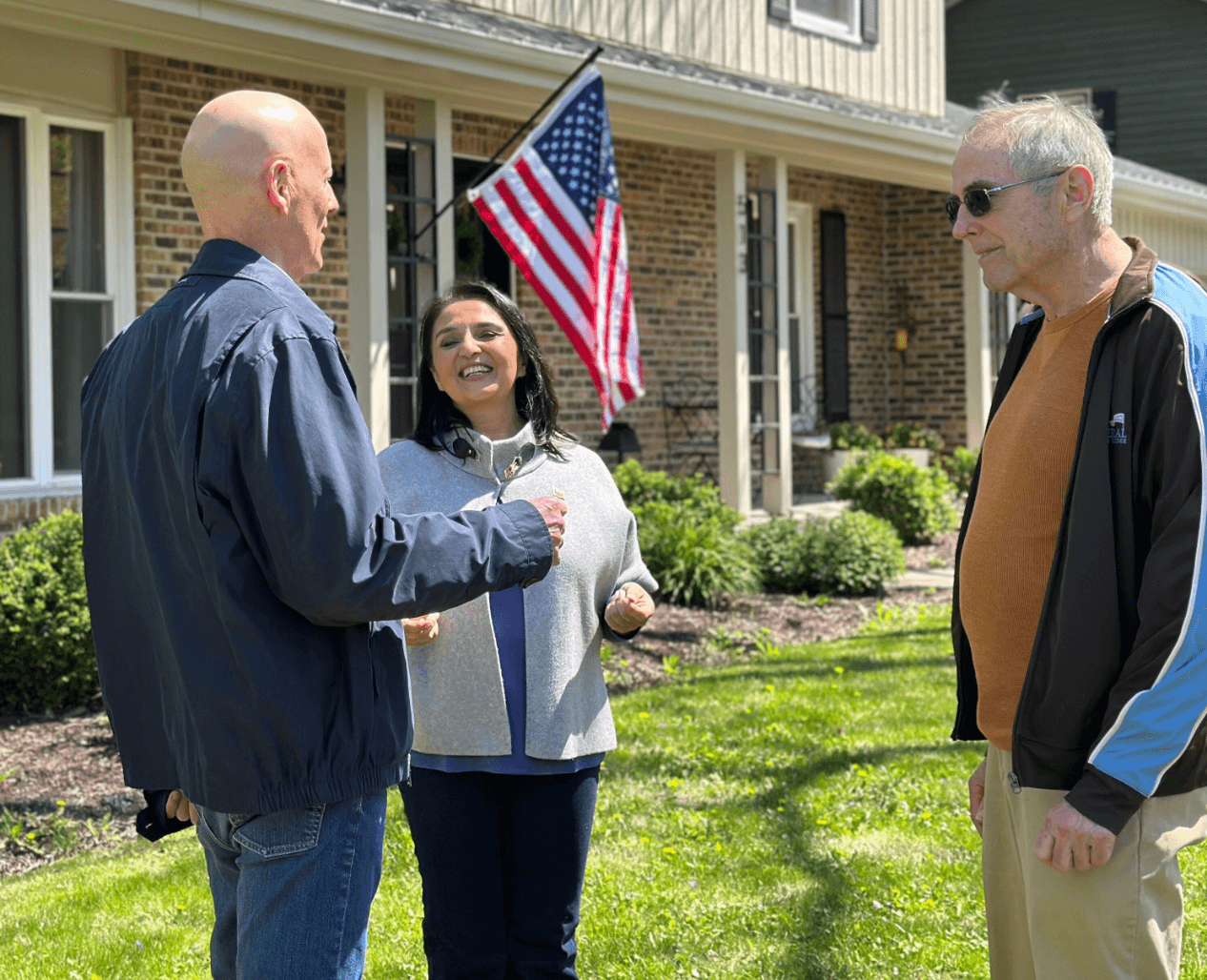 Her work ethic carried into her college years at Northwestern University, where she juggled studies with a daily paper route. As an adult, she balanced the demands of single motherhood, running a small business, and caring for her ailing parents. These life experiences have given her firsthand insight into the everyday struggles facing working families. “My life was Made in America. This campaign was Made in America. It could not have happened anywhere else,” she declared. “Now, I’m committed to making sure that the same American Dream is alive and well now, and for generations to come.”
Her work ethic carried into her college years at Northwestern University, where she juggled studies with a daily paper route. As an adult, she balanced the demands of single motherhood, running a small business, and caring for her ailing parents. These life experiences have given her firsthand insight into the everyday struggles facing working families. “My life was Made in America. This campaign was Made in America. It could not have happened anywhere else,” she declared. “Now, I’m committed to making sure that the same American Dream is alive and well now, and for generations to come.”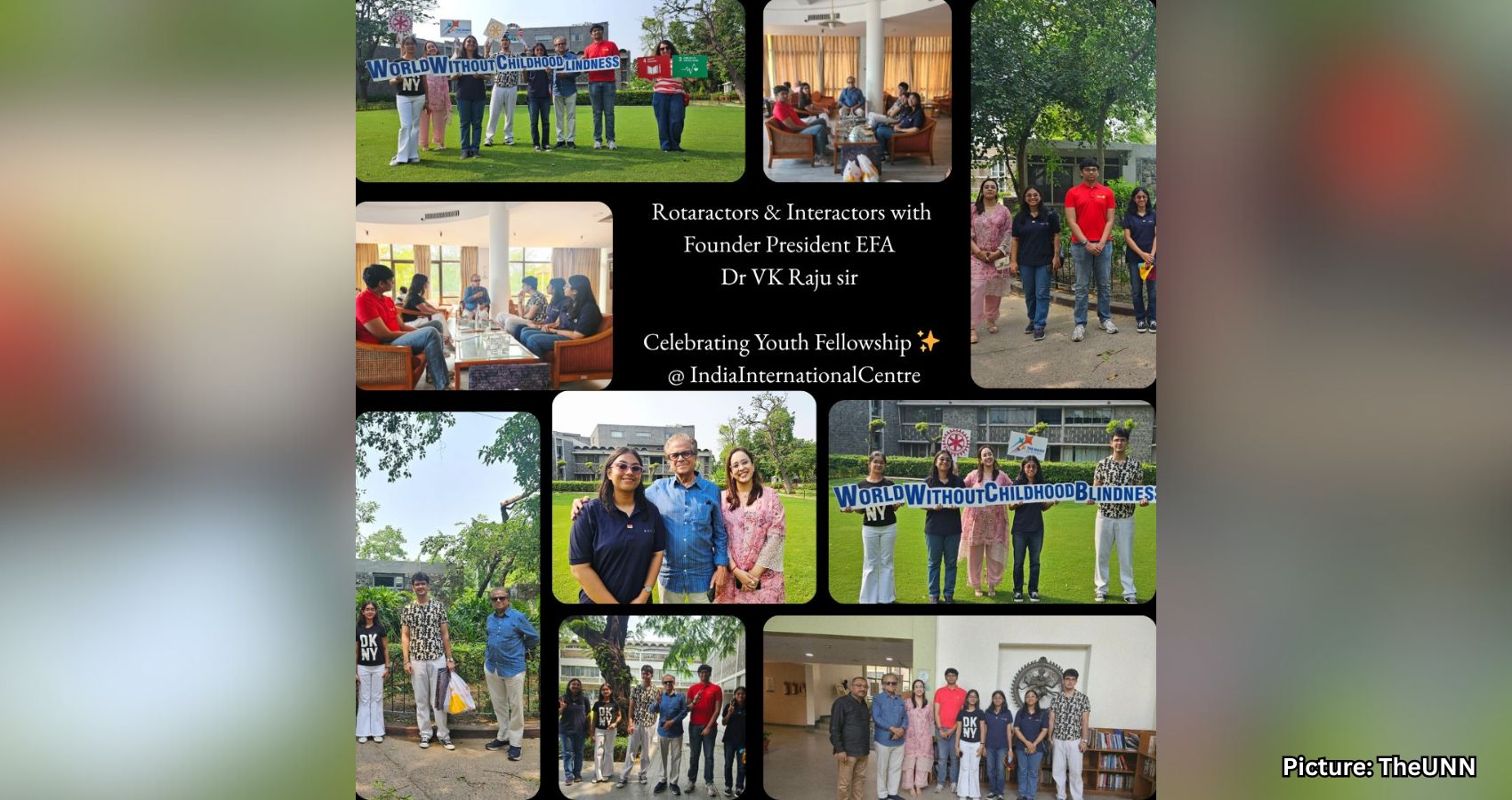
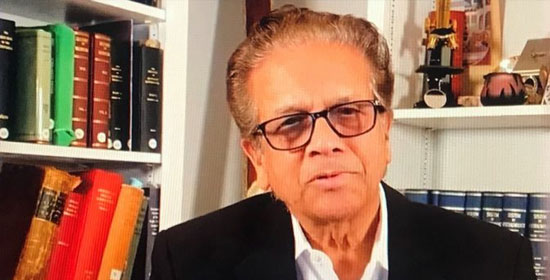 Rotary’s youth members are joining forces with the globally renowned visionary Dr. V.K. Raju, founder of the Eye Foundation of America (EFA), in a profound mission to eradicate childhood blindness. On June 14, 2025, an inspiring gathering took place at the India International Centre in New Delhi, where a dynamic group of Rotaractors and Interactors expressed their unwavering commitment to carrying forward Dr. Raju’s vision of a “world without childhood blindness.” This event marked a significant step in creating intergenerational partnerships for global health equity.
Rotary’s youth members are joining forces with the globally renowned visionary Dr. V.K. Raju, founder of the Eye Foundation of America (EFA), in a profound mission to eradicate childhood blindness. On June 14, 2025, an inspiring gathering took place at the India International Centre in New Delhi, where a dynamic group of Rotaractors and Interactors expressed their unwavering commitment to carrying forward Dr. Raju’s vision of a “world without childhood blindness.” This event marked a significant step in creating intergenerational partnerships for global health equity.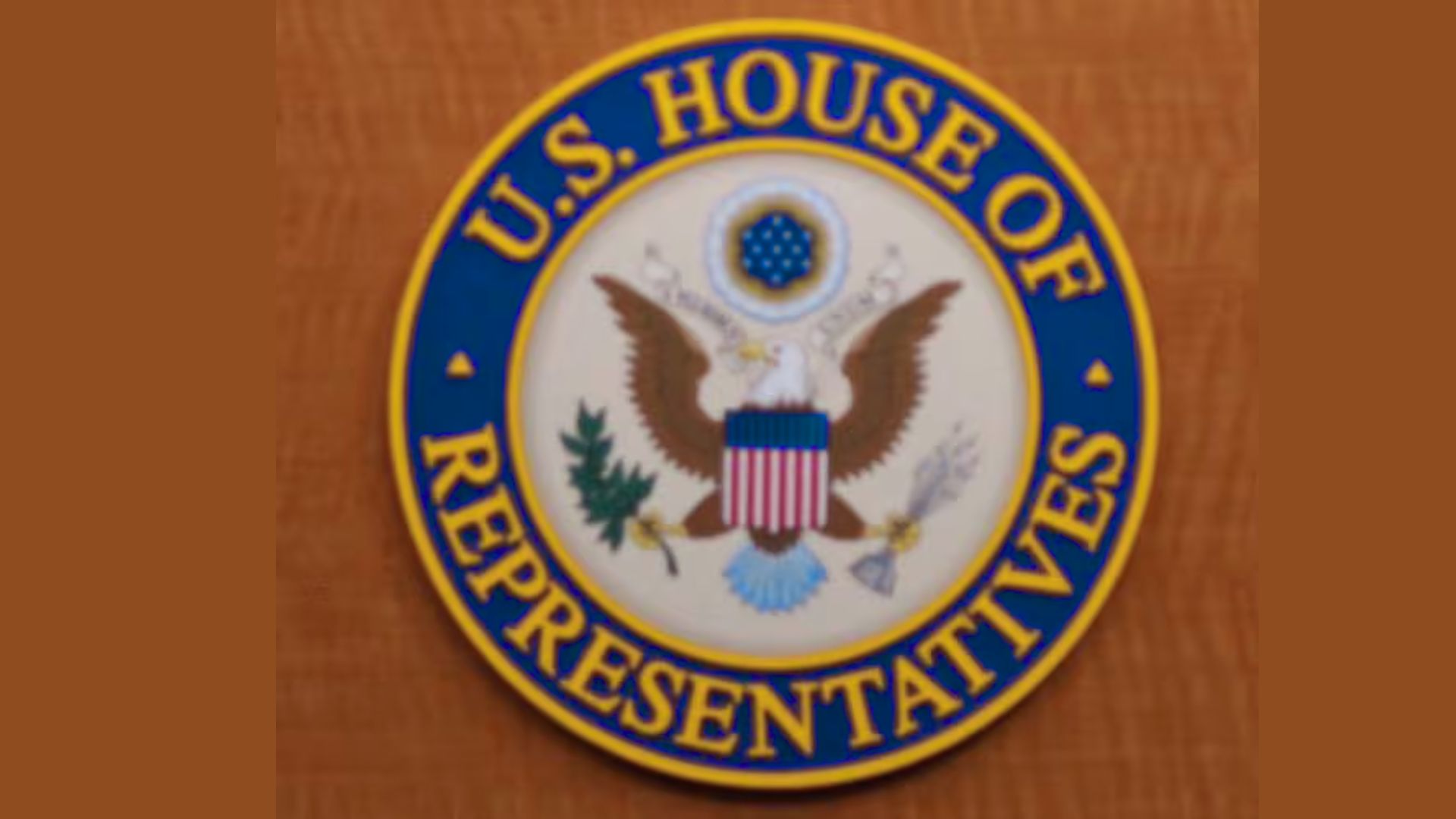
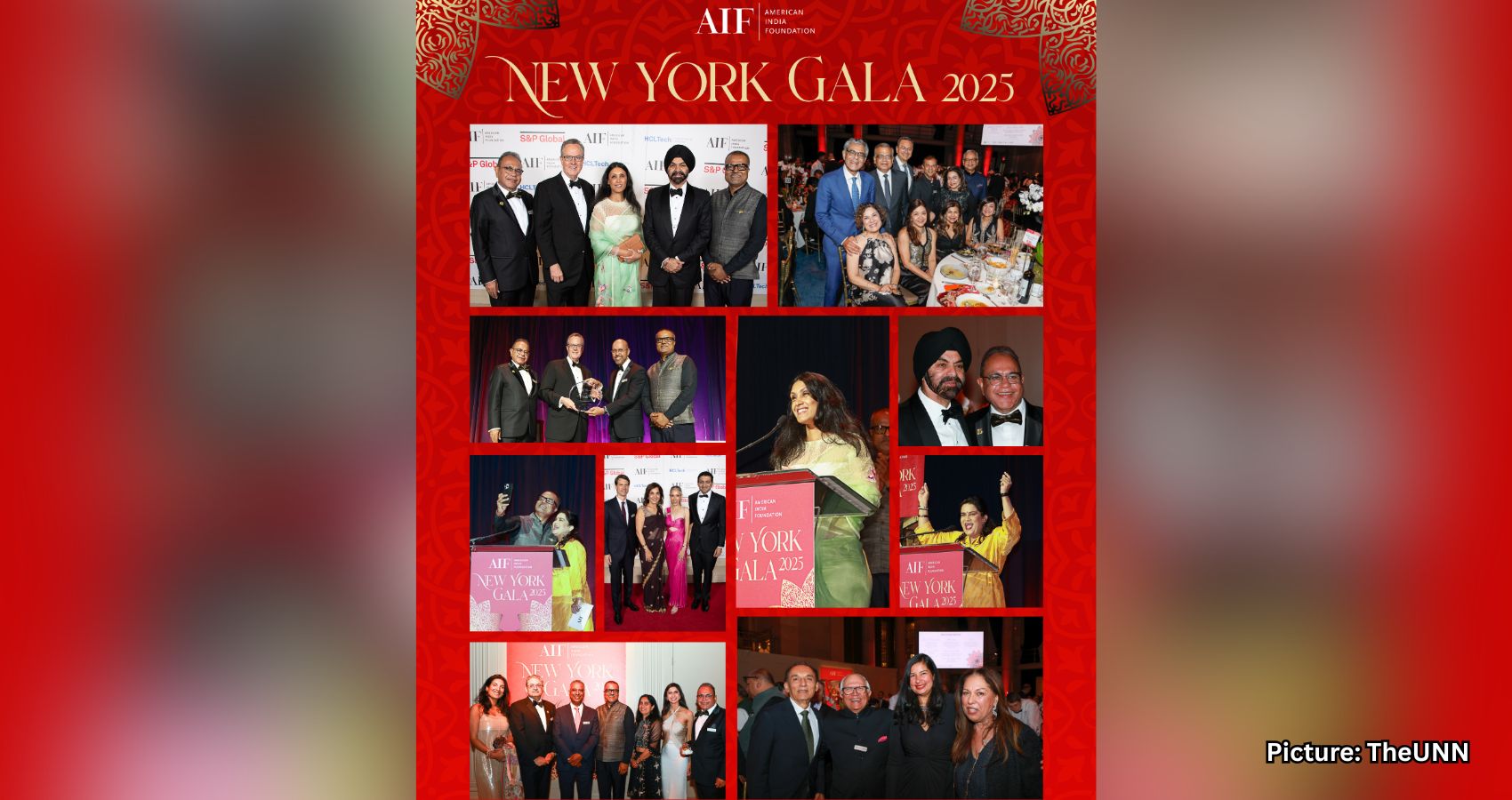

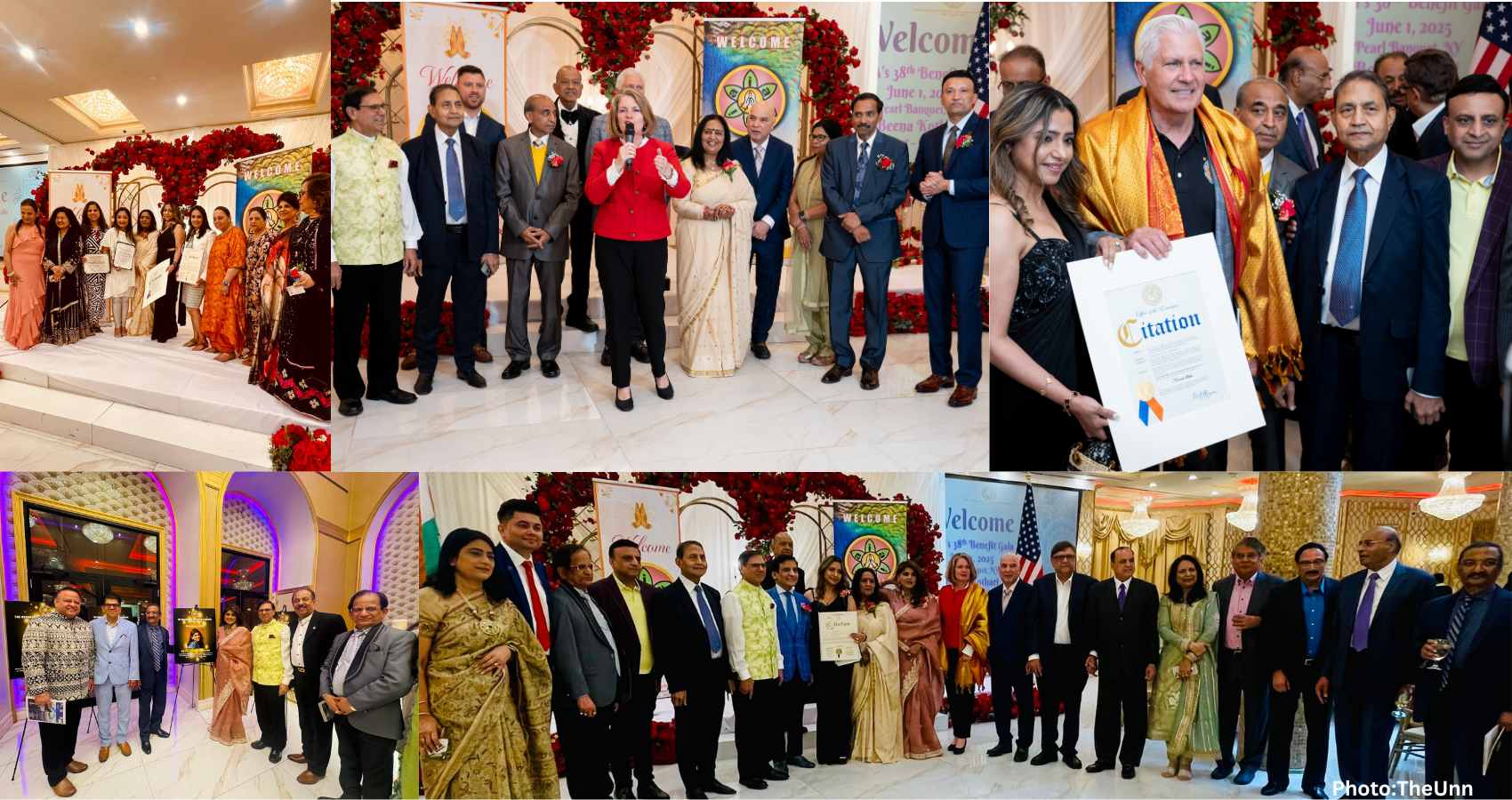


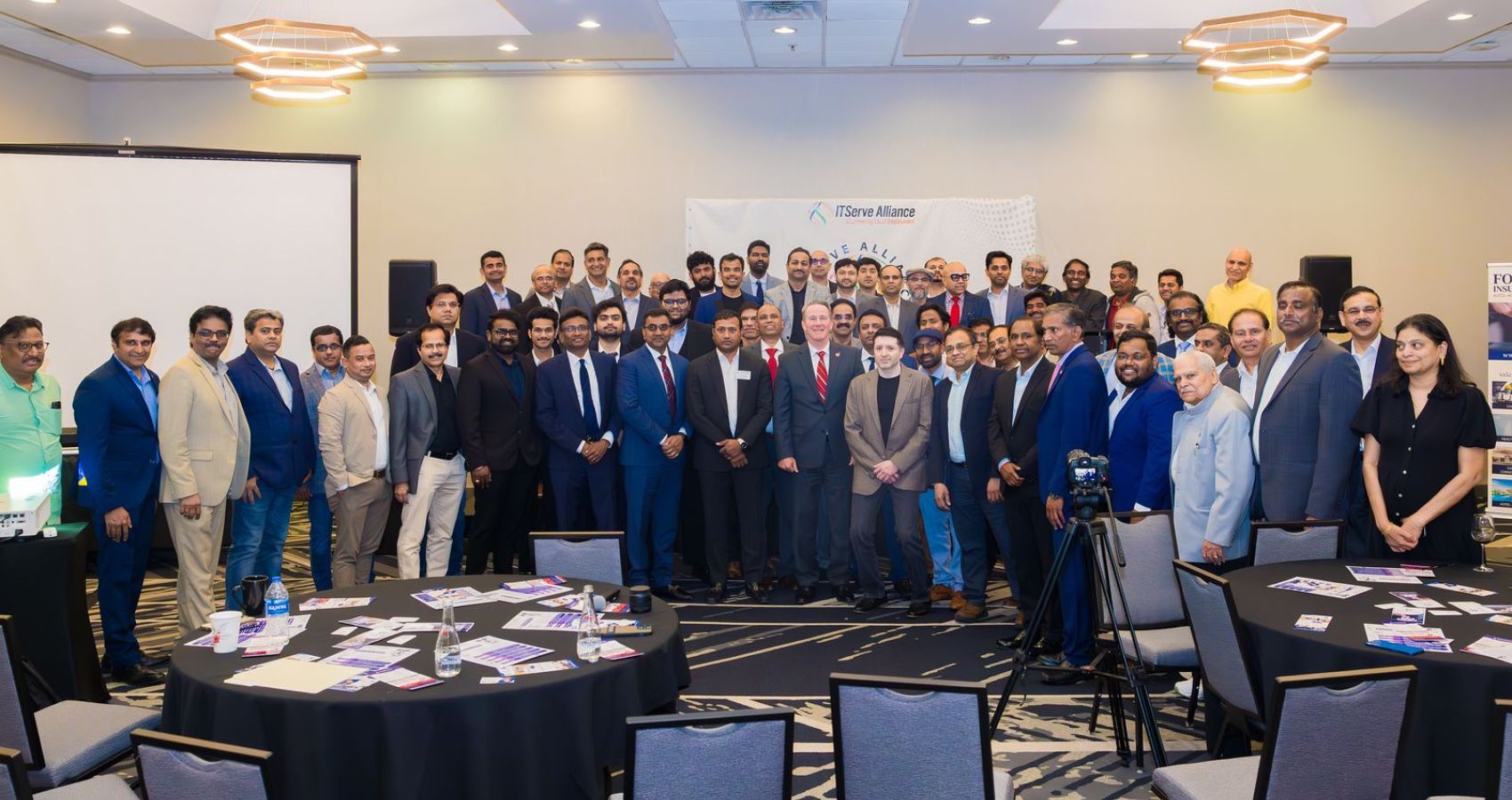
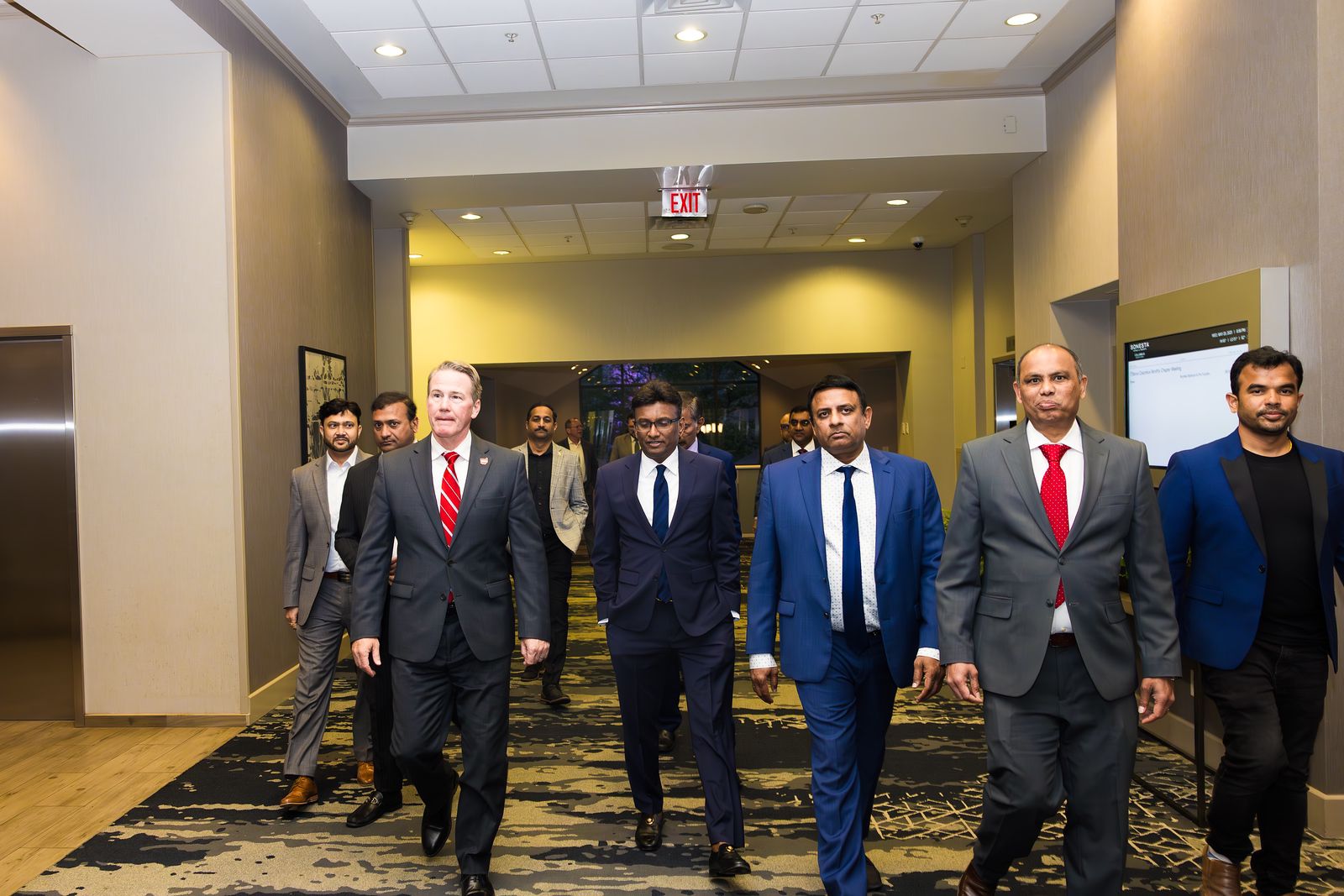 Vallabhaneni, while expressing his appreciation and gratitude to the Sen. Husted, who serves on the Committee on Health, Education, Labor, and Pensions, the Committee on Small Business and Entrepreneurship, the Committee on Environment and Public Works, and the Special Committee on Aging, said, “We truly appreciate the time he spent with us and the valuable insights he shared. His perspectives on current affairs and the evolving role of IT and AI in the industry were both timely and thought-provoking.”
Vallabhaneni, while expressing his appreciation and gratitude to the Sen. Husted, who serves on the Committee on Health, Education, Labor, and Pensions, the Committee on Small Business and Entrepreneurship, the Committee on Environment and Public Works, and the Special Committee on Aging, said, “We truly appreciate the time he spent with us and the valuable insights he shared. His perspectives on current affairs and the evolving role of IT and AI in the industry were both timely and thought-provoking.”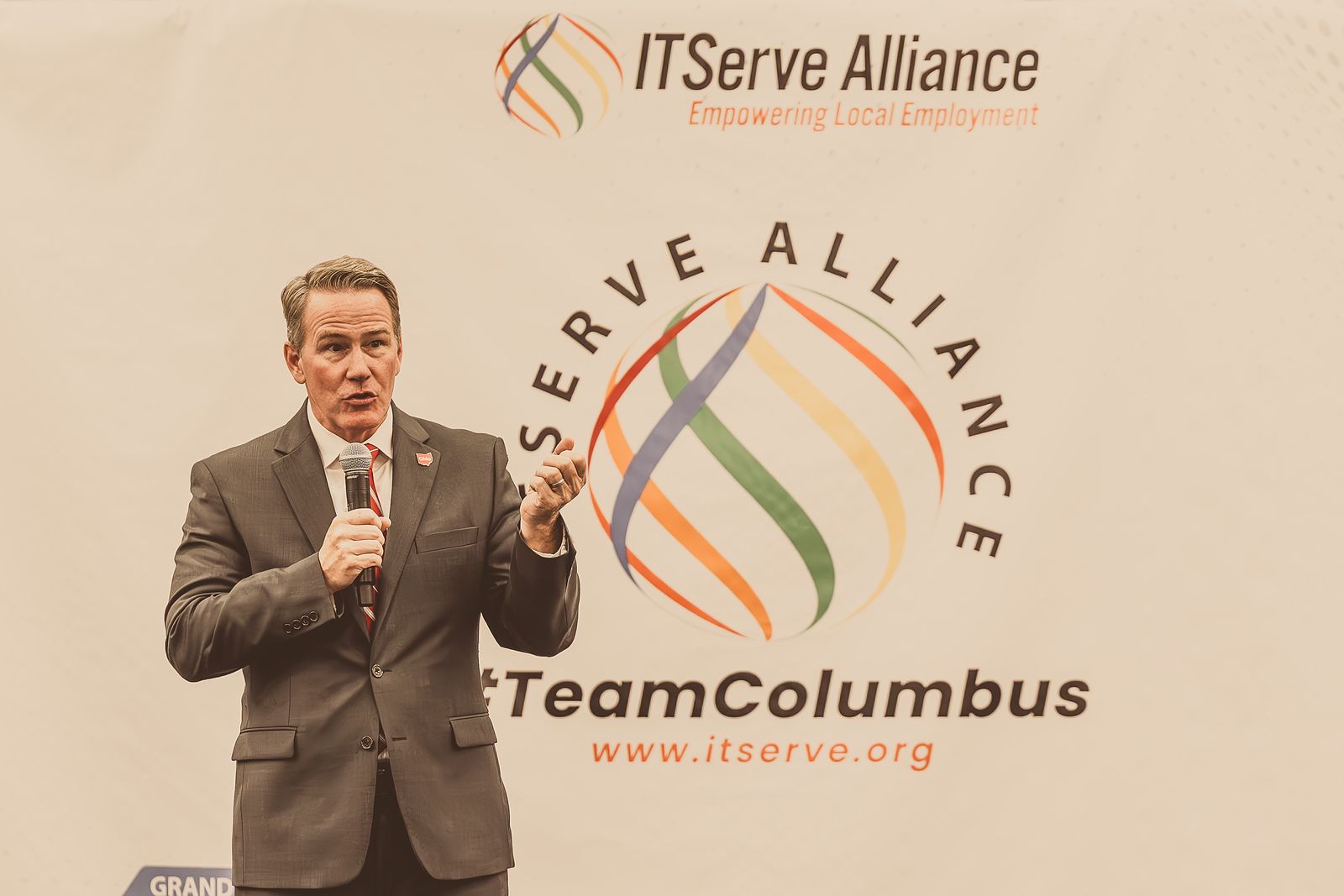 Capitol Hill Day is a vital part of ITServe Alliance, which was born out of the necessity to be the voice of IT companies in the United States, advocating for our rights, with the objective of educating lawmakers working toward meaningful changes that will benefit the IT industry and the larger society across the nation.
Capitol Hill Day is a vital part of ITServe Alliance, which was born out of the necessity to be the voice of IT companies in the United States, advocating for our rights, with the objective of educating lawmakers working toward meaningful changes that will benefit the IT industry and the larger society across the nation.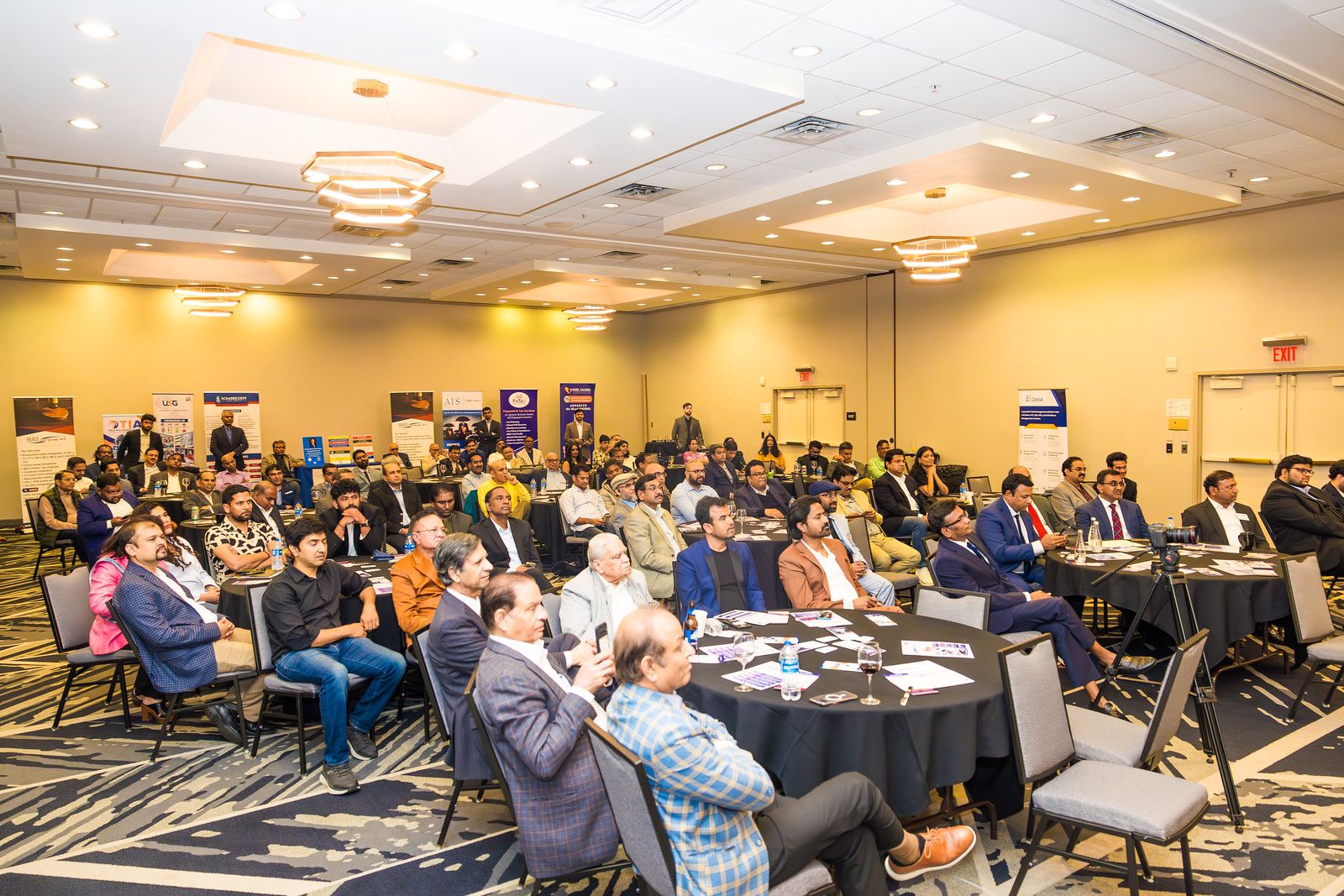 About ITServe Alliance:
About ITServe Alliance: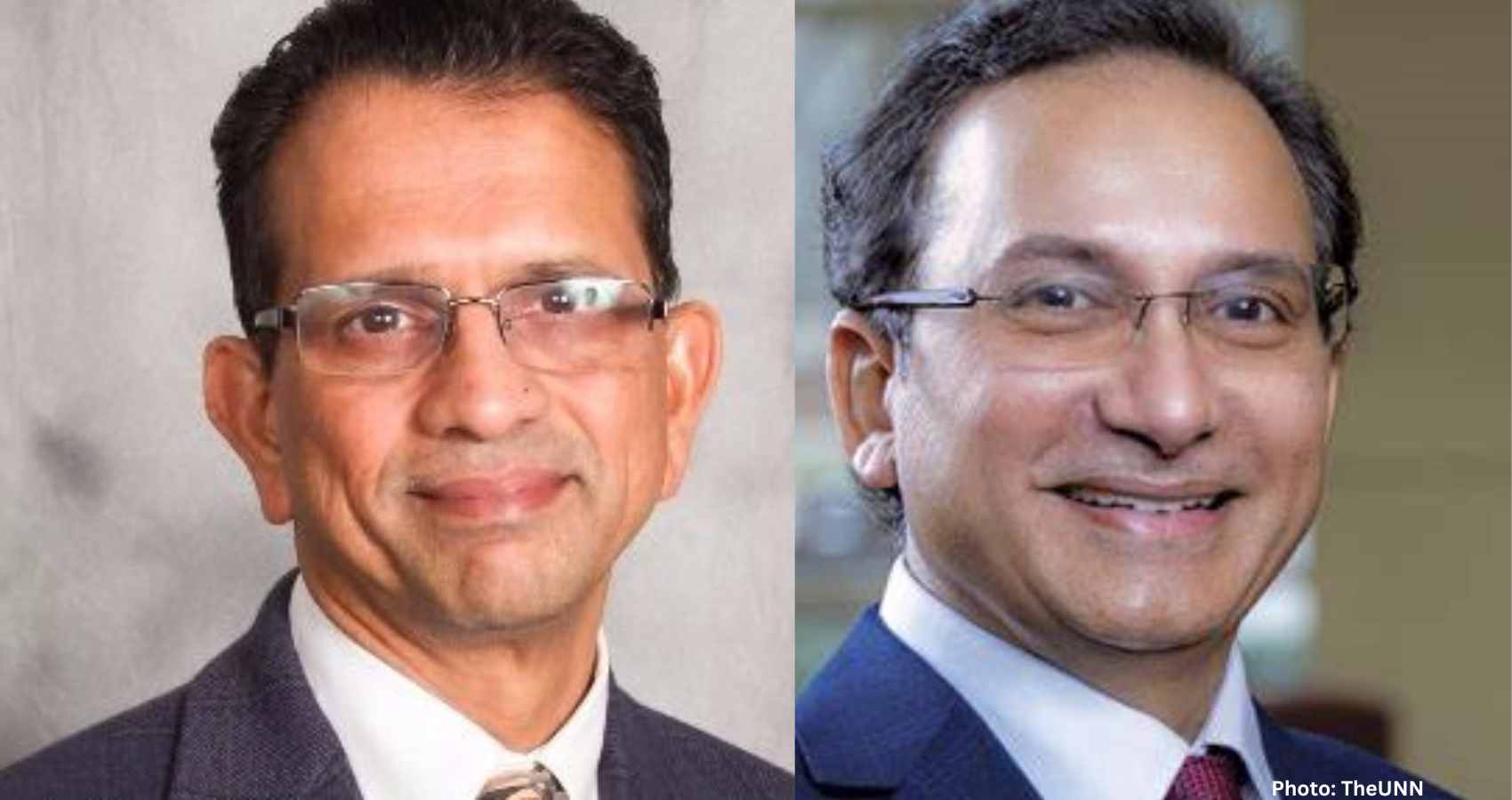
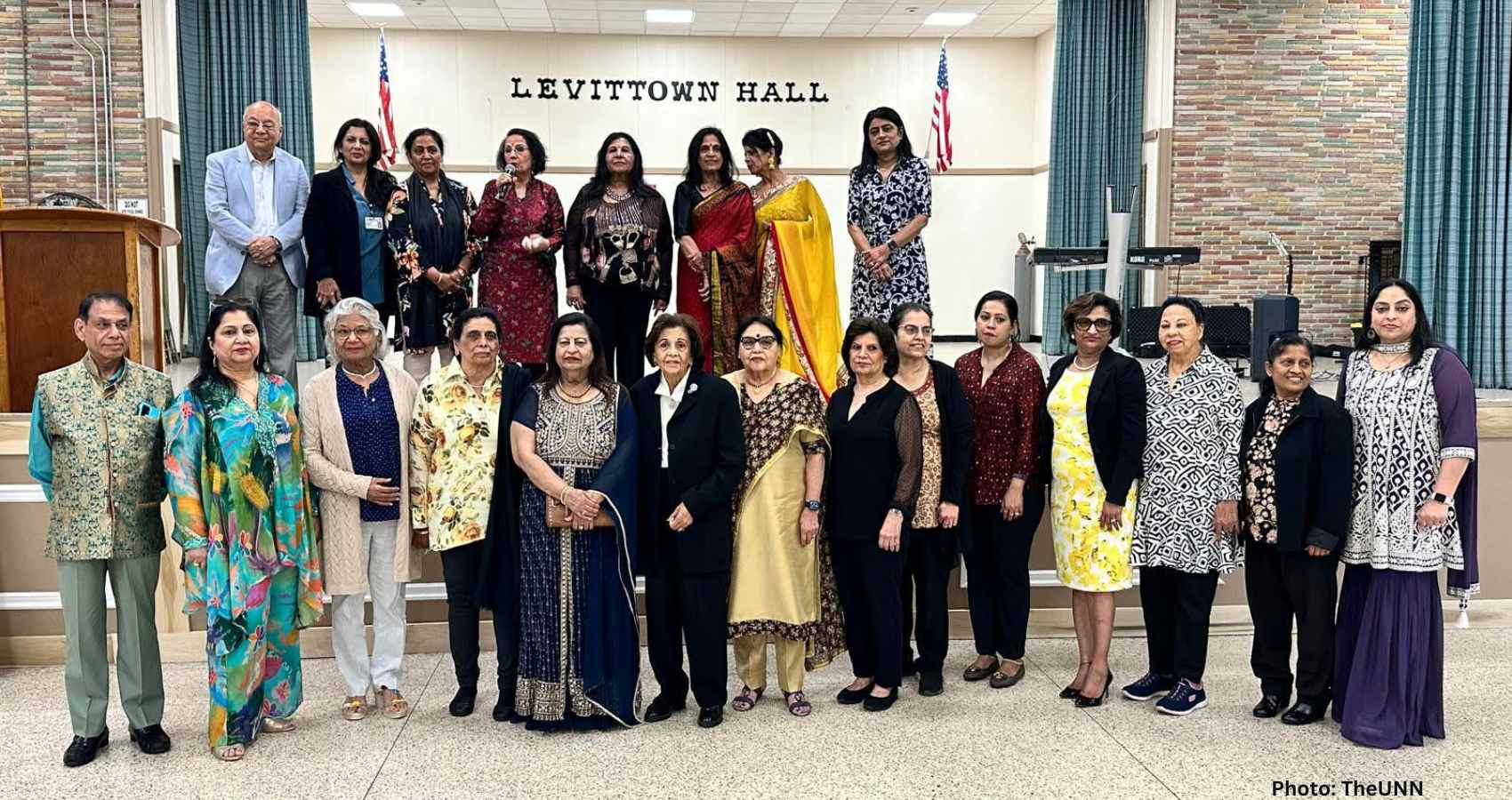

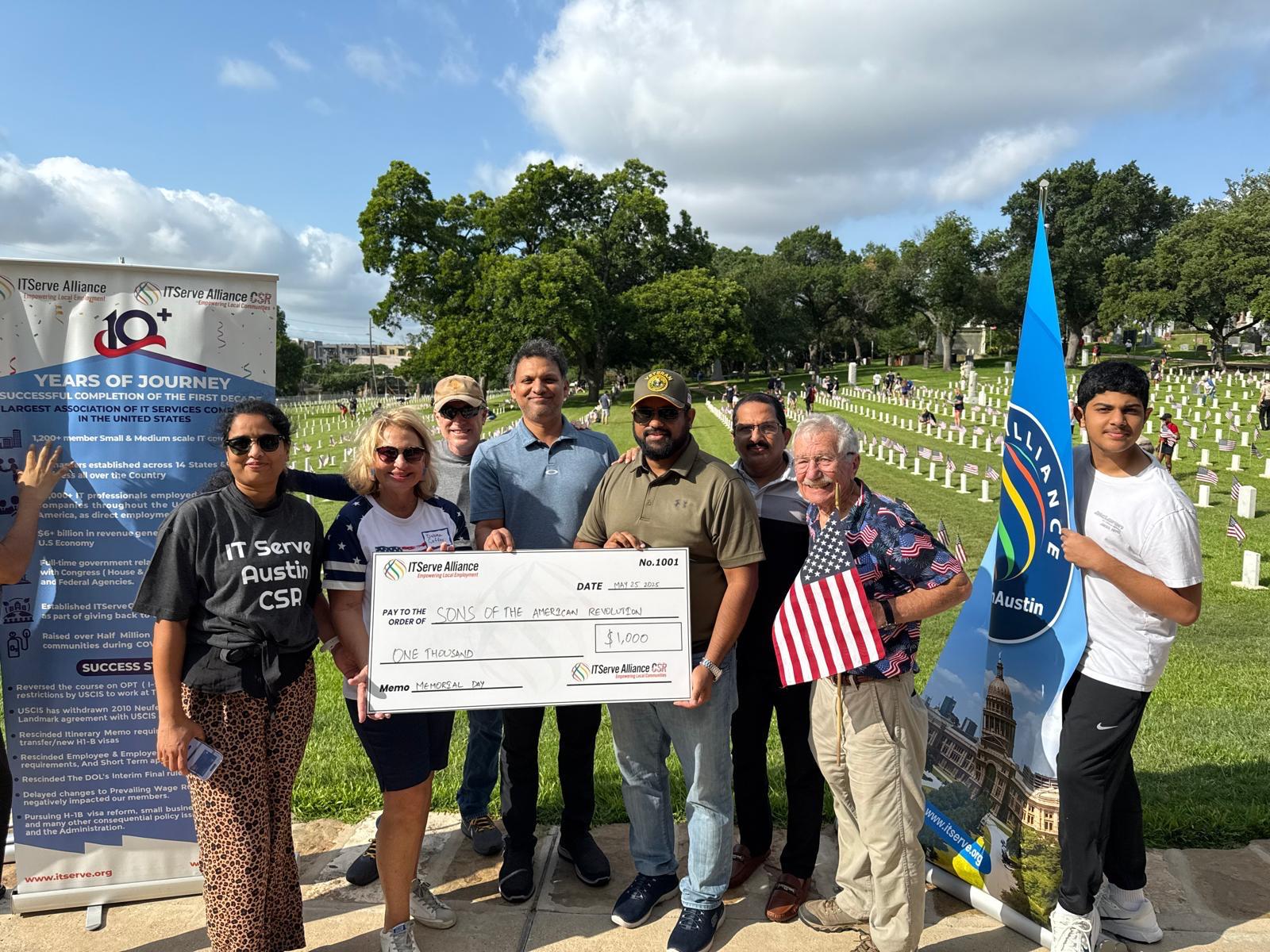
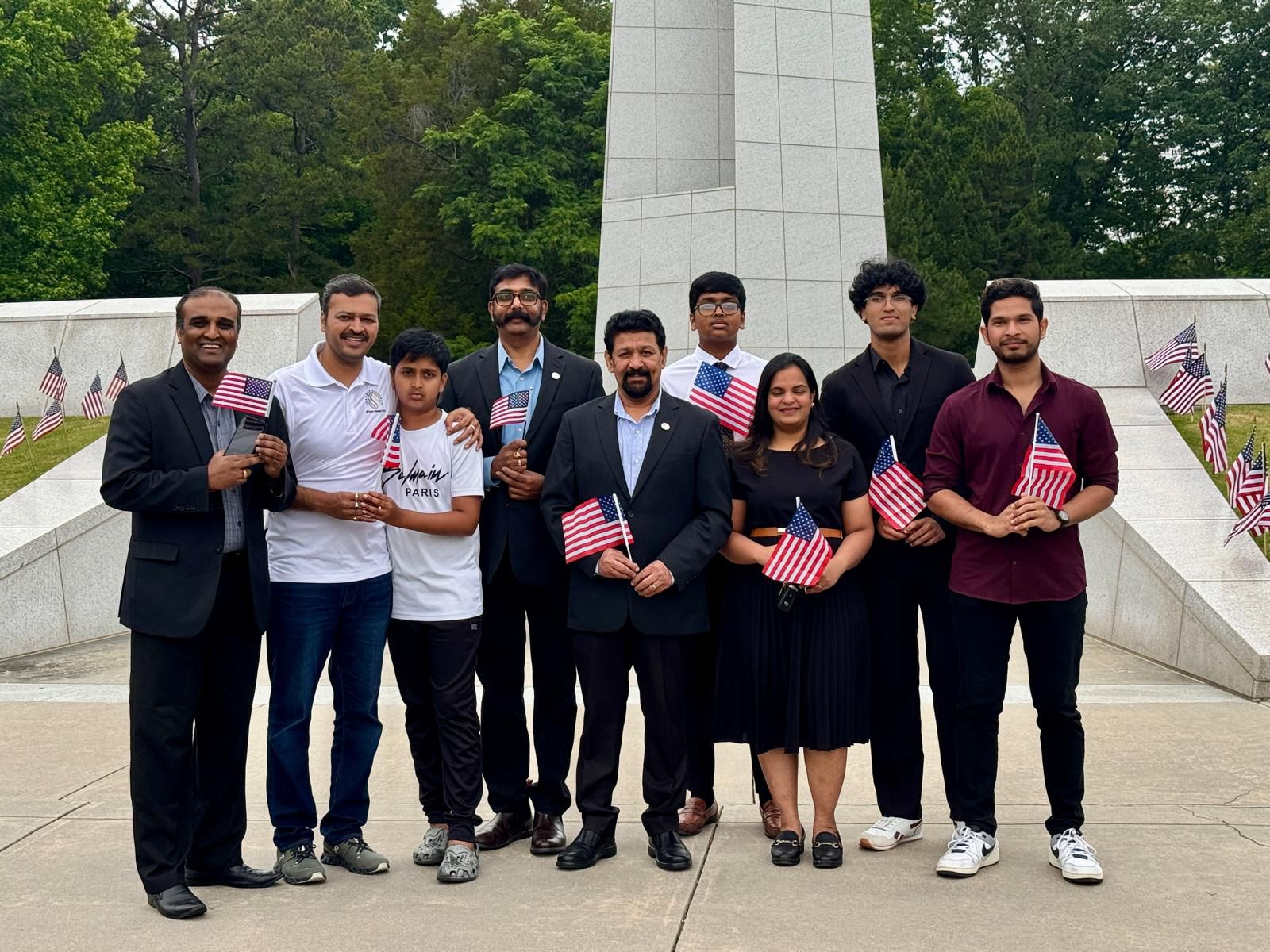 “ITServe and its member community is committed to corporate social responsibility (CSR) and actively contributing to local communities nationwide,” said Anju Vallabhaneni. “We recognize the sacrifices of our veterans and first responders, who selflessly serve our nation. Supporting them and their families is of utmost importance to us, as we express our gratitude for their unwavering dedication and bravery.”
“ITServe and its member community is committed to corporate social responsibility (CSR) and actively contributing to local communities nationwide,” said Anju Vallabhaneni. “We recognize the sacrifices of our veterans and first responders, who selflessly serve our nation. Supporting them and their families is of utmost importance to us, as we express our gratitude for their unwavering dedication and bravery.”

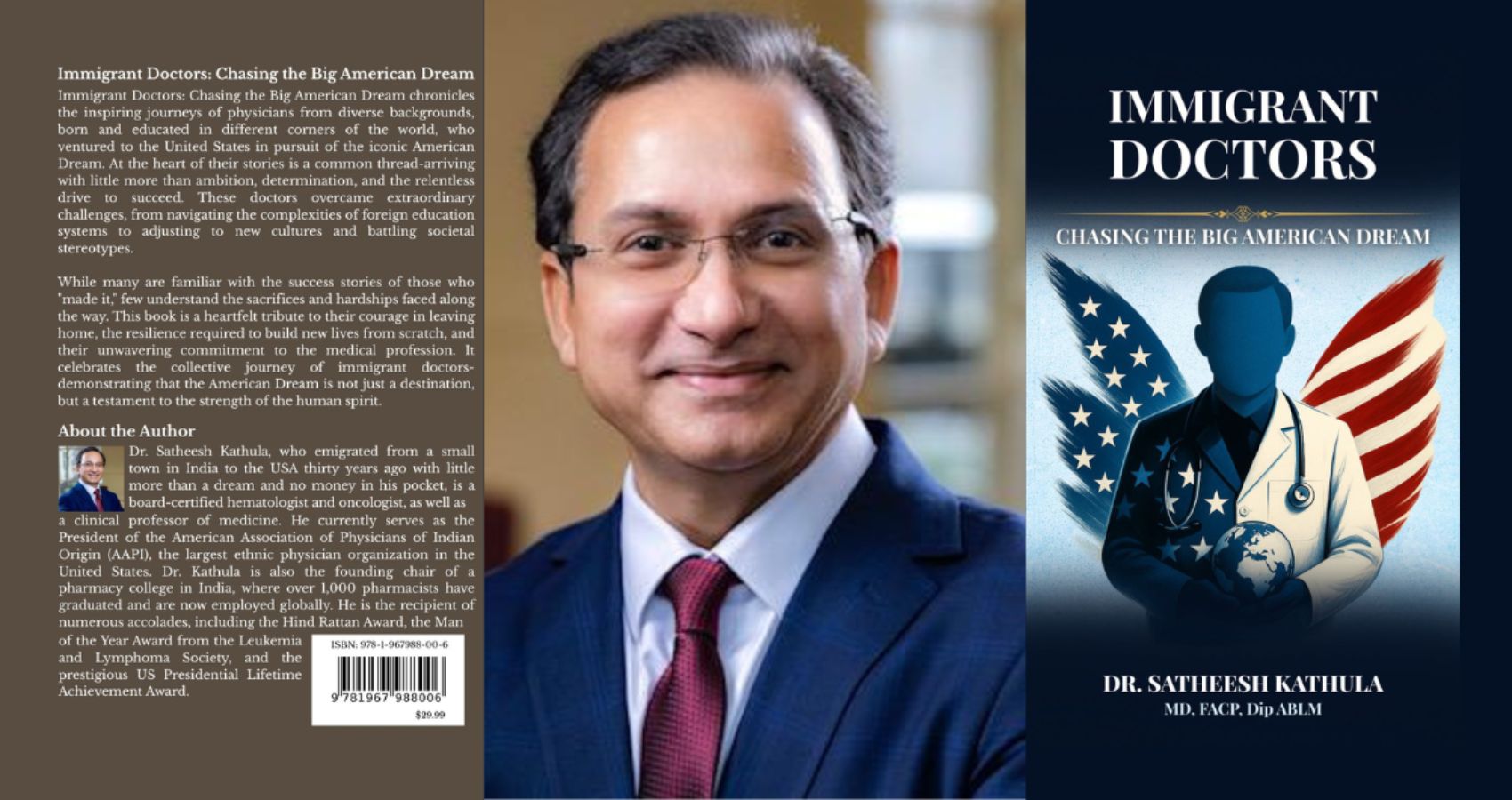

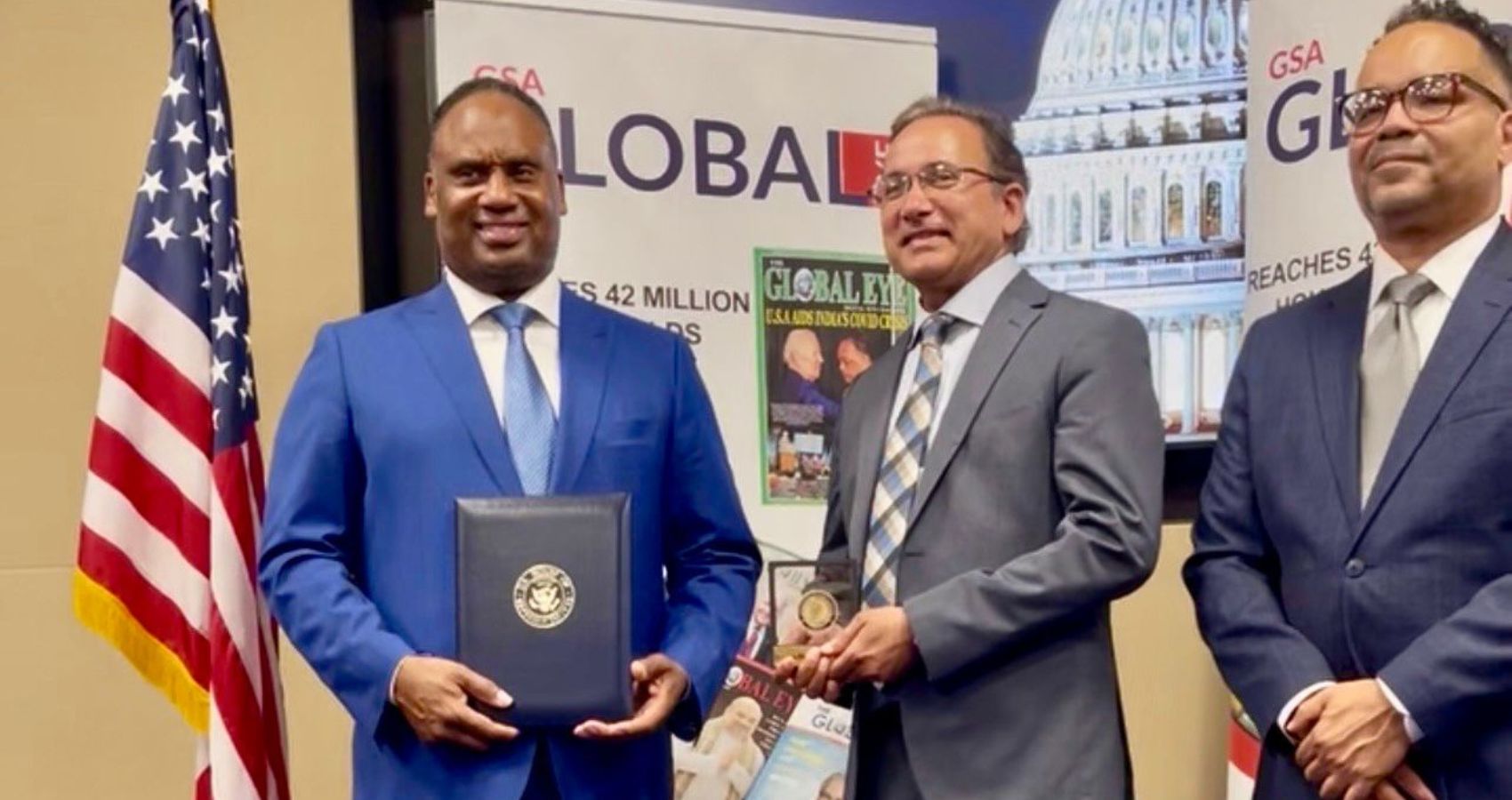
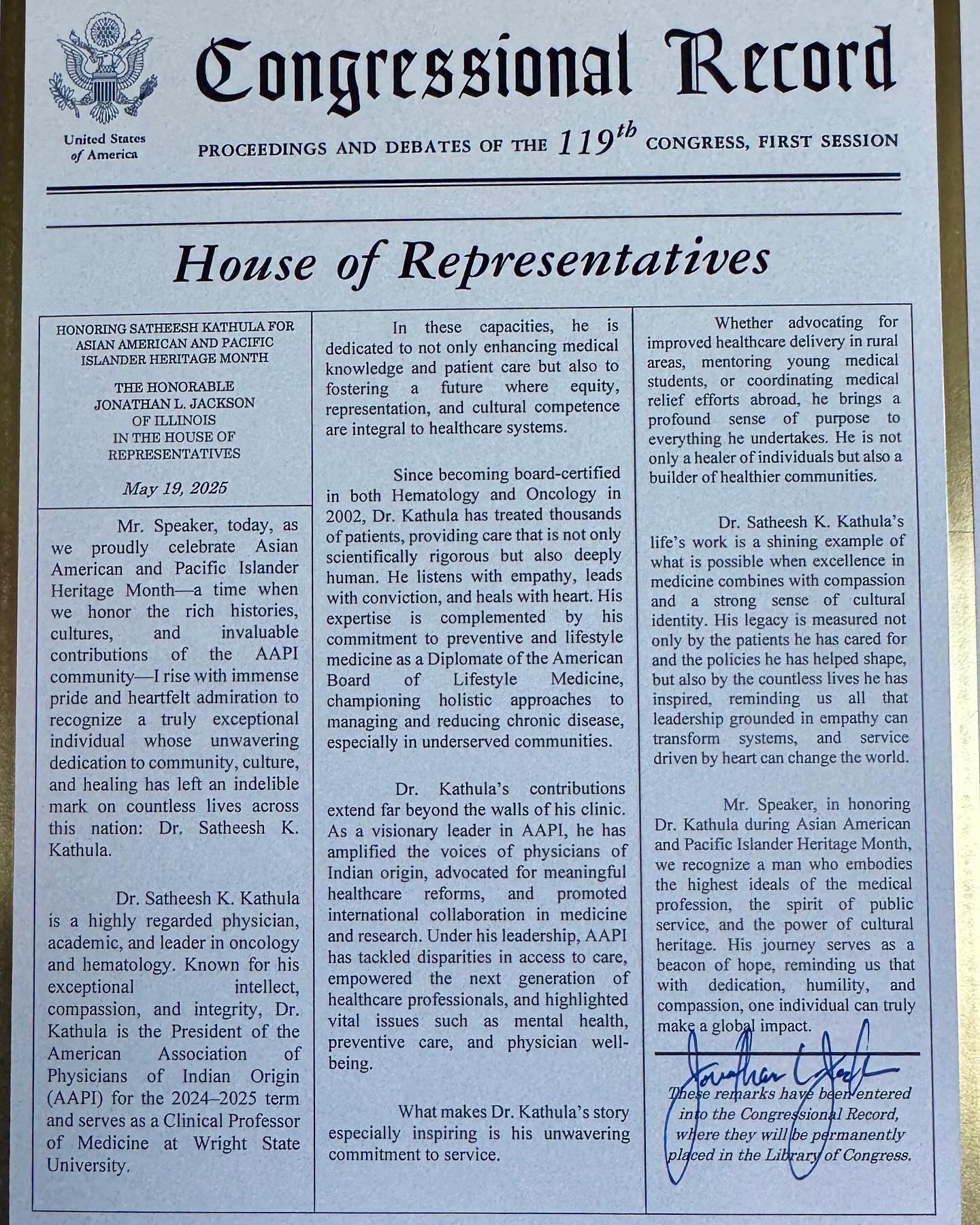 As a Diplomat of the American Board of Lifestyle Medicine, championing holistic approaches to managing and reducing Chronic Disease, especially in underserved communities, “Dr Kathula’s contributions extend far beyond the walls of his clinic. As a visionary leader in AAPI, he has amplified the voices of Physicians of Indian religion, advocated for meaningful healthcare reforms, and promoted international collaboration in medicine and research under his leadership,” Rep. Jackson added.
As a Diplomat of the American Board of Lifestyle Medicine, championing holistic approaches to managing and reducing Chronic Disease, especially in underserved communities, “Dr Kathula’s contributions extend far beyond the walls of his clinic. As a visionary leader in AAPI, he has amplified the voices of Physicians of Indian religion, advocated for meaningful healthcare reforms, and promoted international collaboration in medicine and research under his leadership,” Rep. Jackson added.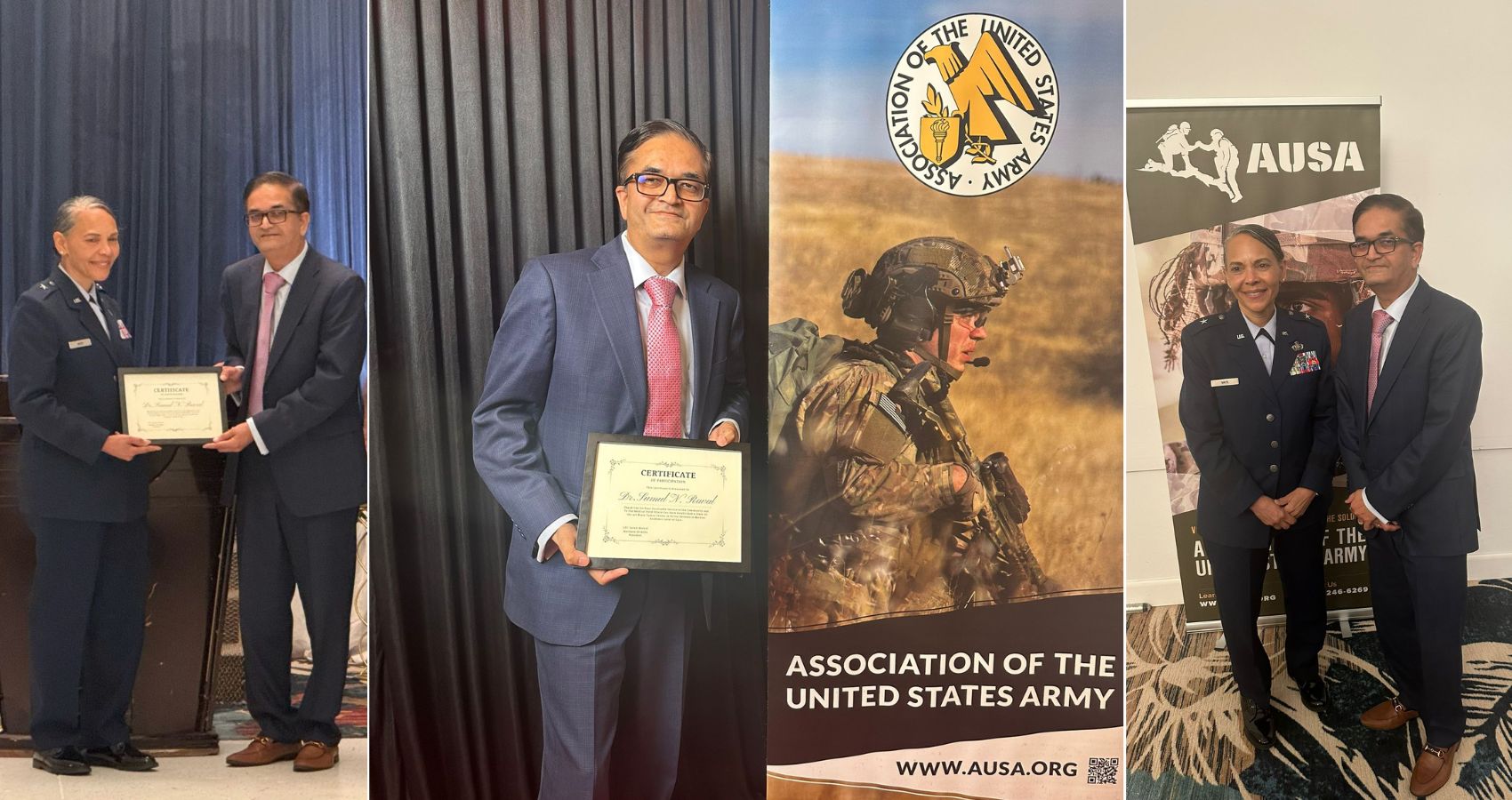
 His facility, the David S. Zocchi Brain Tumor Center, is renowned for its innovative approaches in treating brain tumors and improving patient outcomes. Dr. Raval’s dedication to providing compassionate care has earned him accolades, including the GBM Heroes Award presented at the 21st Annual Scientific Meeting of the Society for Neuro-Oncology organized by CURE® magazine.
His facility, the David S. Zocchi Brain Tumor Center, is renowned for its innovative approaches in treating brain tumors and improving patient outcomes. Dr. Raval’s dedication to providing compassionate care has earned him accolades, including the GBM Heroes Award presented at the 21st Annual Scientific Meeting of the Society for Neuro-Oncology organized by CURE® magazine.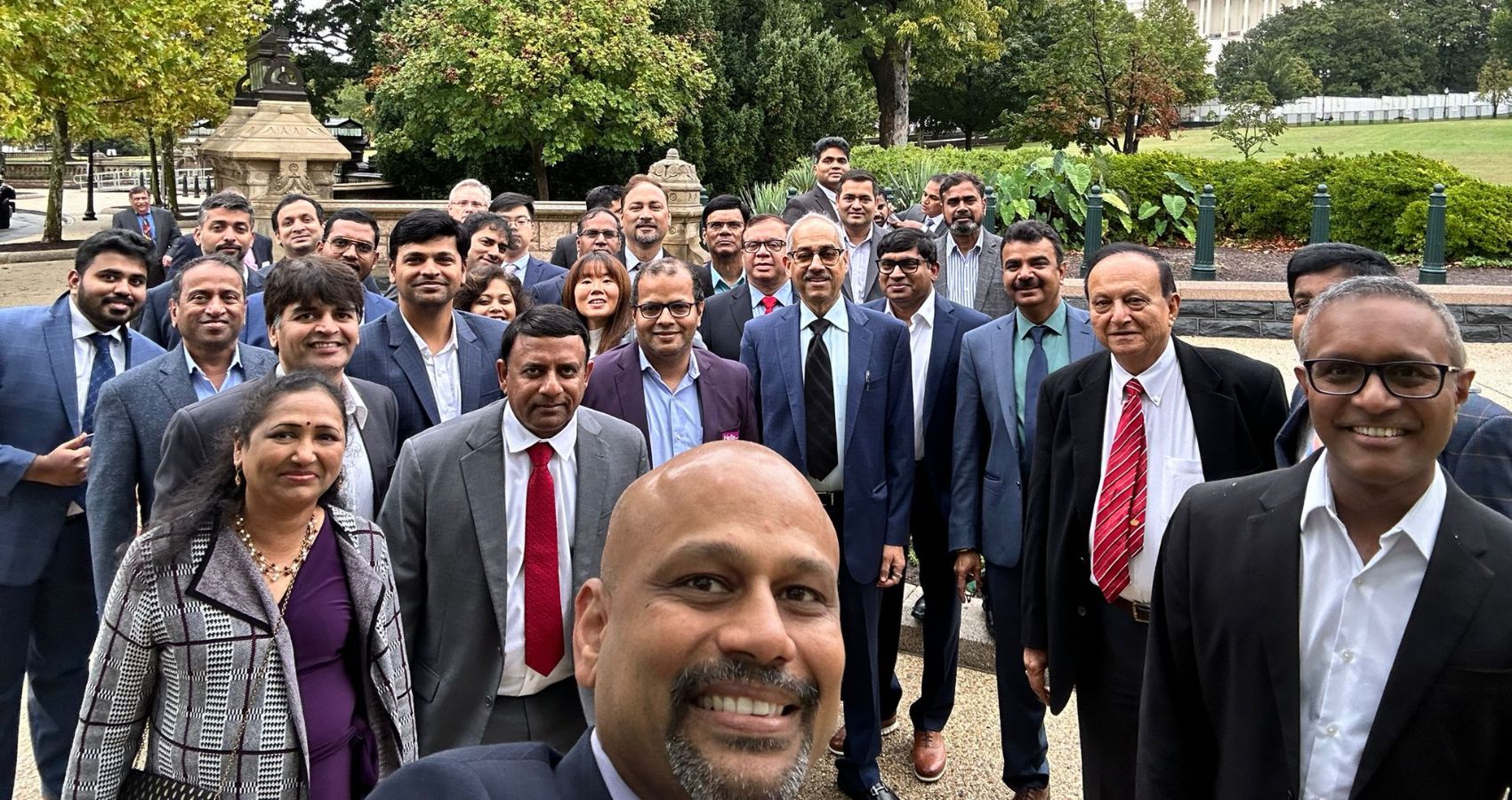
 A key objective of ITServe has been to raise awareness among lawmakers and the broader community about the positive impact of high-skilled legal immigration programs on businesses. Through constructive engagement and collaboration with Members of Congress and Senators, ITServe aims to address misconceptions and advocate for thoughtful legislation that supports economic growth and serves the best interests of the nation.
A key objective of ITServe has been to raise awareness among lawmakers and the broader community about the positive impact of high-skilled legal immigration programs on businesses. Through constructive engagement and collaboration with Members of Congress and Senators, ITServe aims to address misconceptions and advocate for thoughtful legislation that supports economic growth and serves the best interests of the nation.






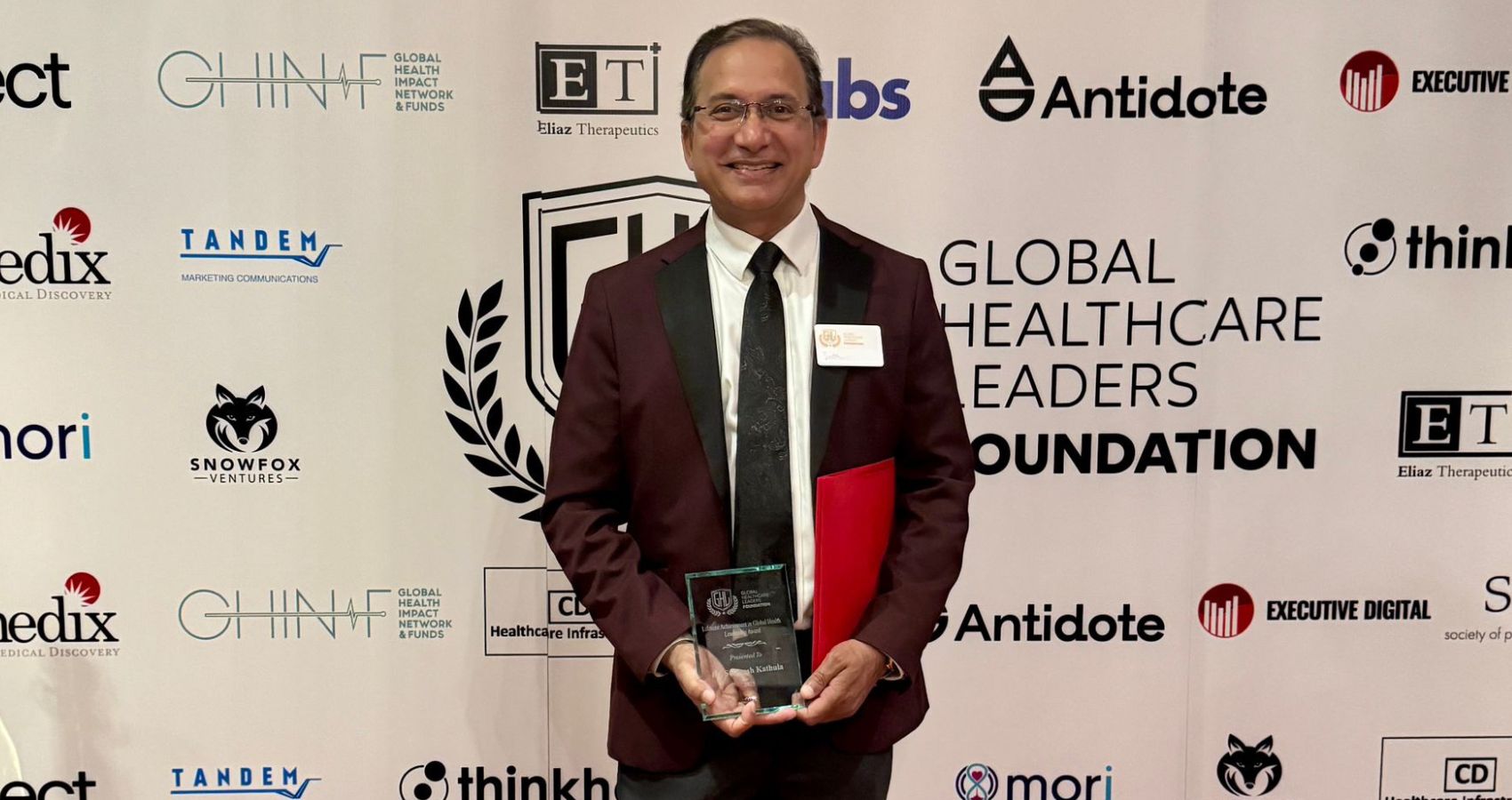
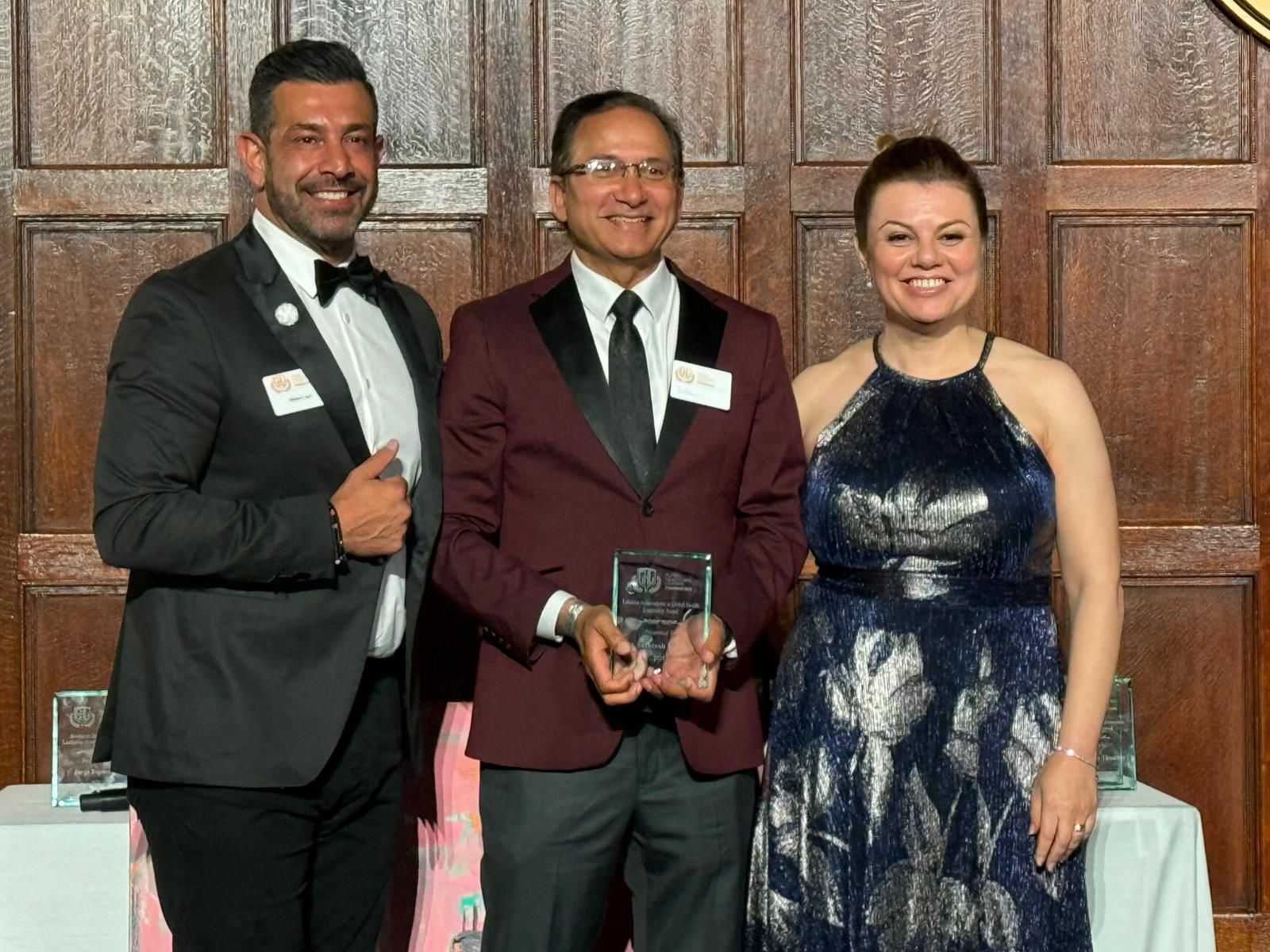 Dr. Satheesh Kathula is a renowned hematologist and oncologist based in Dayton, Ohio, currently serving as the President of the American Association of Physicians of Indian Origin (AAPI). Dr. Kathula, in his response after receiving the award, said, “I am truly humbled to receive this Lifetime Achievement in Global Healthcare Leadership alongside several other remarkable individuals. This inspires not only me, but the people who are serving the community and society at large.”
Dr. Satheesh Kathula is a renowned hematologist and oncologist based in Dayton, Ohio, currently serving as the President of the American Association of Physicians of Indian Origin (AAPI). Dr. Kathula, in his response after receiving the award, said, “I am truly humbled to receive this Lifetime Achievement in Global Healthcare Leadership alongside several other remarkable individuals. This inspires not only me, but the people who are serving the community and society at large.”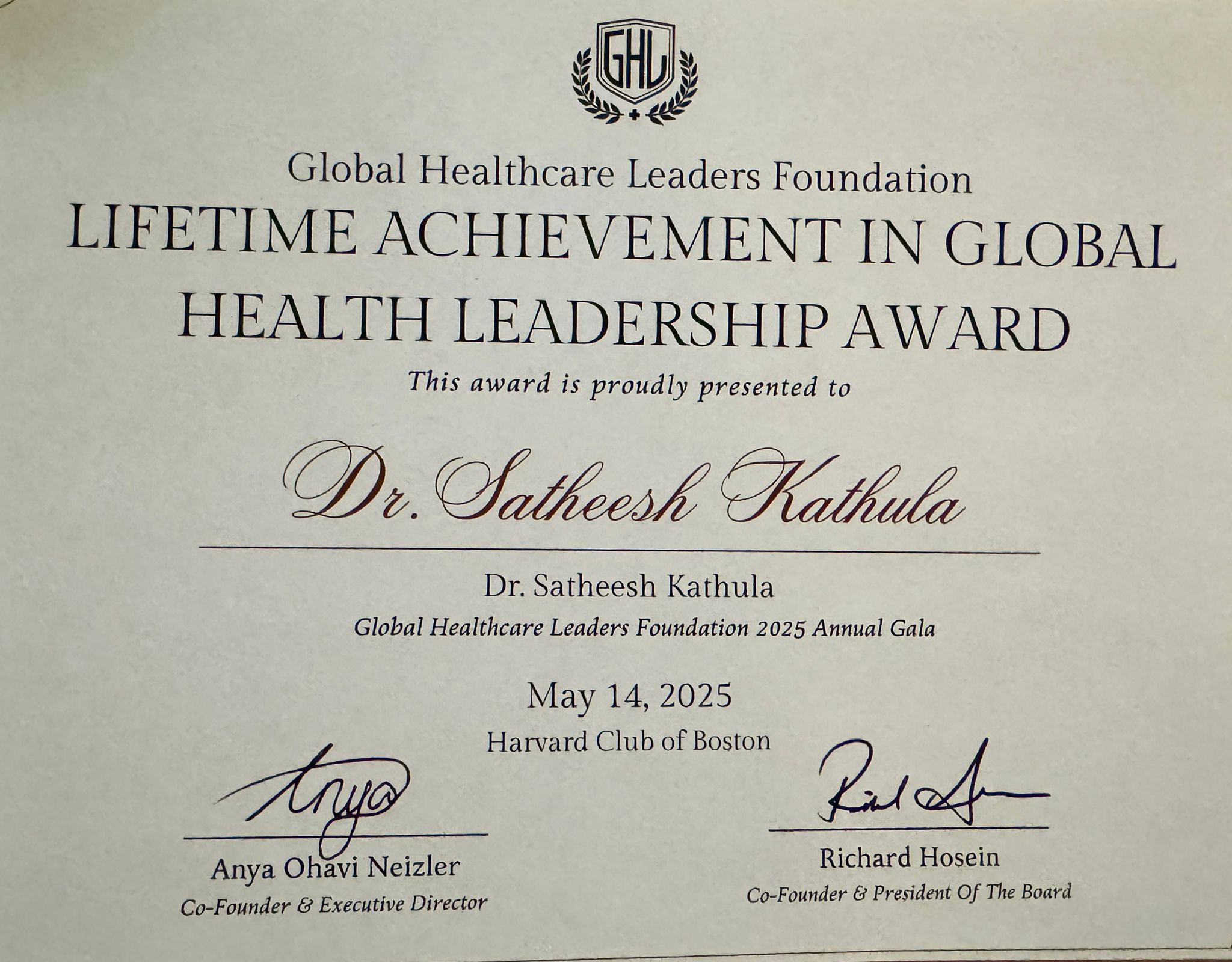 Under his leadership, AAPI has launched a program called “Million Miles of Gratitude” to honor veterans by promoting physical activity. Participants can log their walking or running miles, with each mile serving as a tribute to the veterans. The goal is to collectively reach a million miles in the coming year. In May this year, he led a highly successful AAPI Legislative Day on Capitol Hill, where AAPI sought to collectively shape the best health care for the people of US, with the physician at the helm, caring for the medically underserved.
Under his leadership, AAPI has launched a program called “Million Miles of Gratitude” to honor veterans by promoting physical activity. Participants can log their walking or running miles, with each mile serving as a tribute to the veterans. The goal is to collectively reach a million miles in the coming year. In May this year, he led a highly successful AAPI Legislative Day on Capitol Hill, where AAPI sought to collectively shape the best health care for the people of US, with the physician at the helm, caring for the medically underserved.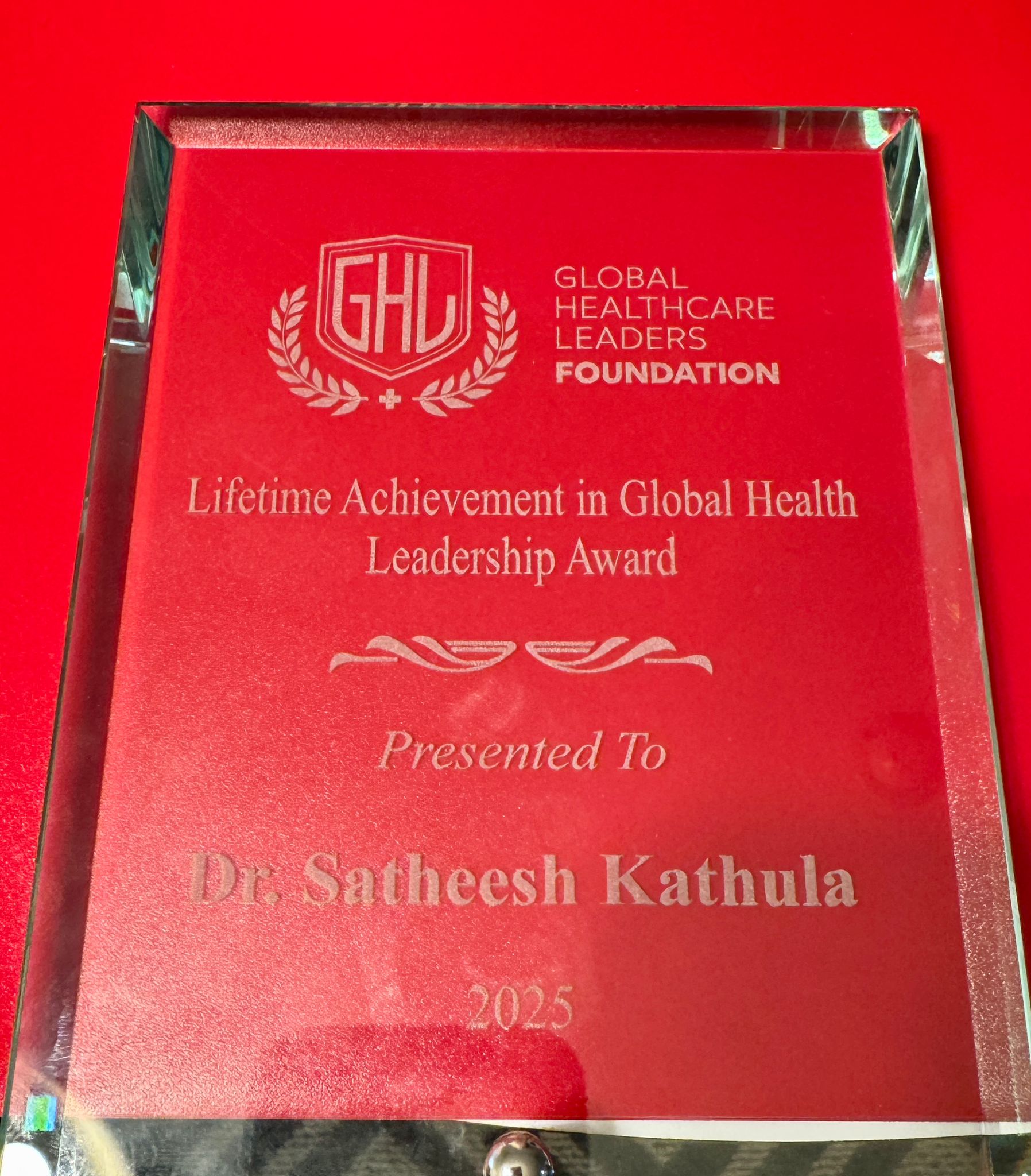 Dr Kathula’s love for his motherland has manifested in him setting up humanitarian and medical projects in India. The most important of them is establishing a state-of-the-art pharmacy college in Warangal in Telangana, where he grew up. Named the Pathfinder Institute of Pharmacy and Educational Research (PIPER), the non-profit with Dr Kathula as the Chairman provides quality education and has already graduated over 1,000 students who are now working in different parts of India and abroad. He conducted several medical camps close to his native place and donated a defibrillator, water purification plant, and library to his native place.
Dr Kathula’s love for his motherland has manifested in him setting up humanitarian and medical projects in India. The most important of them is establishing a state-of-the-art pharmacy college in Warangal in Telangana, where he grew up. Named the Pathfinder Institute of Pharmacy and Educational Research (PIPER), the non-profit with Dr Kathula as the Chairman provides quality education and has already graduated over 1,000 students who are now working in different parts of India and abroad. He conducted several medical camps close to his native place and donated a defibrillator, water purification plant, and library to his native place.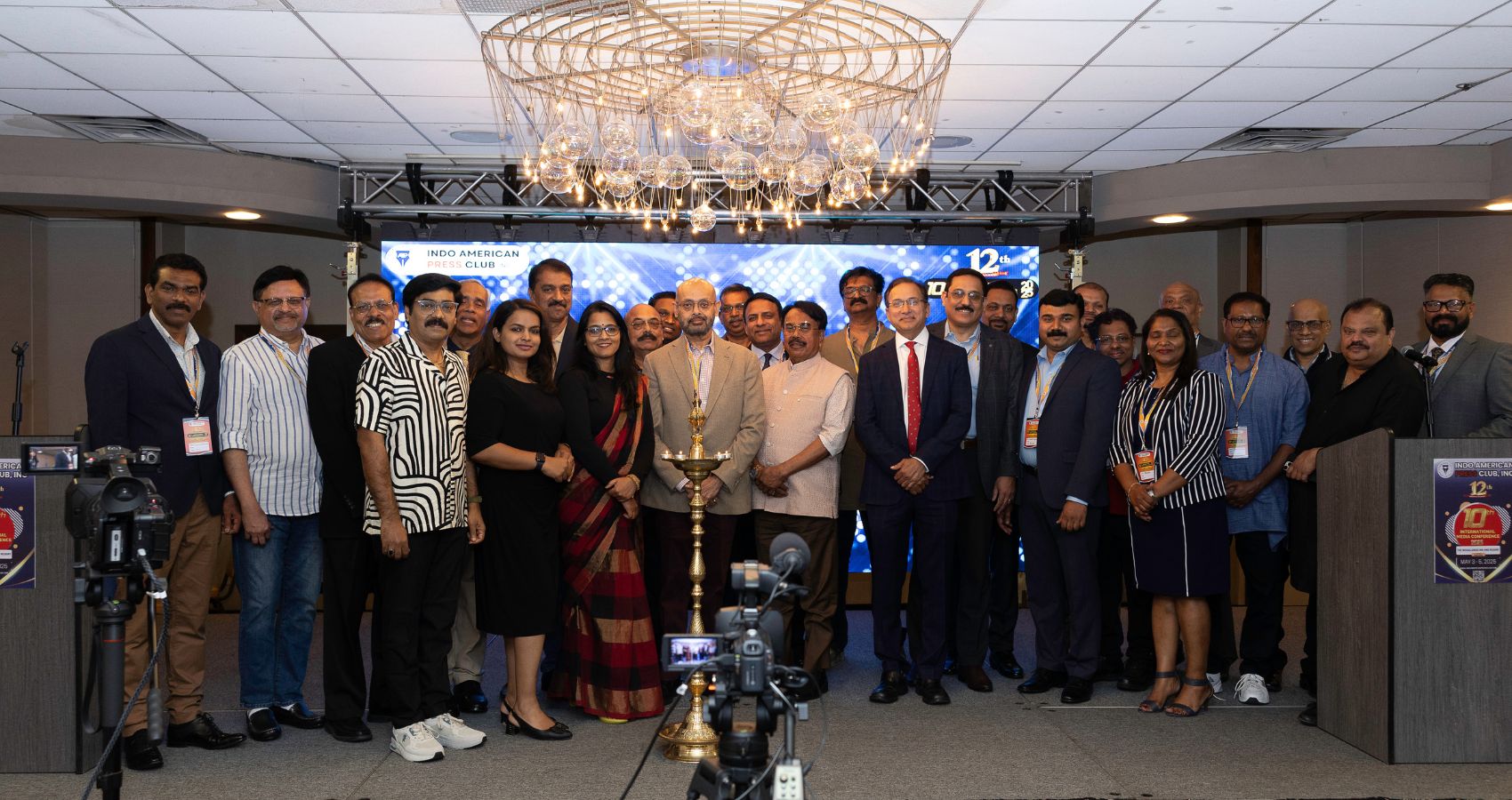
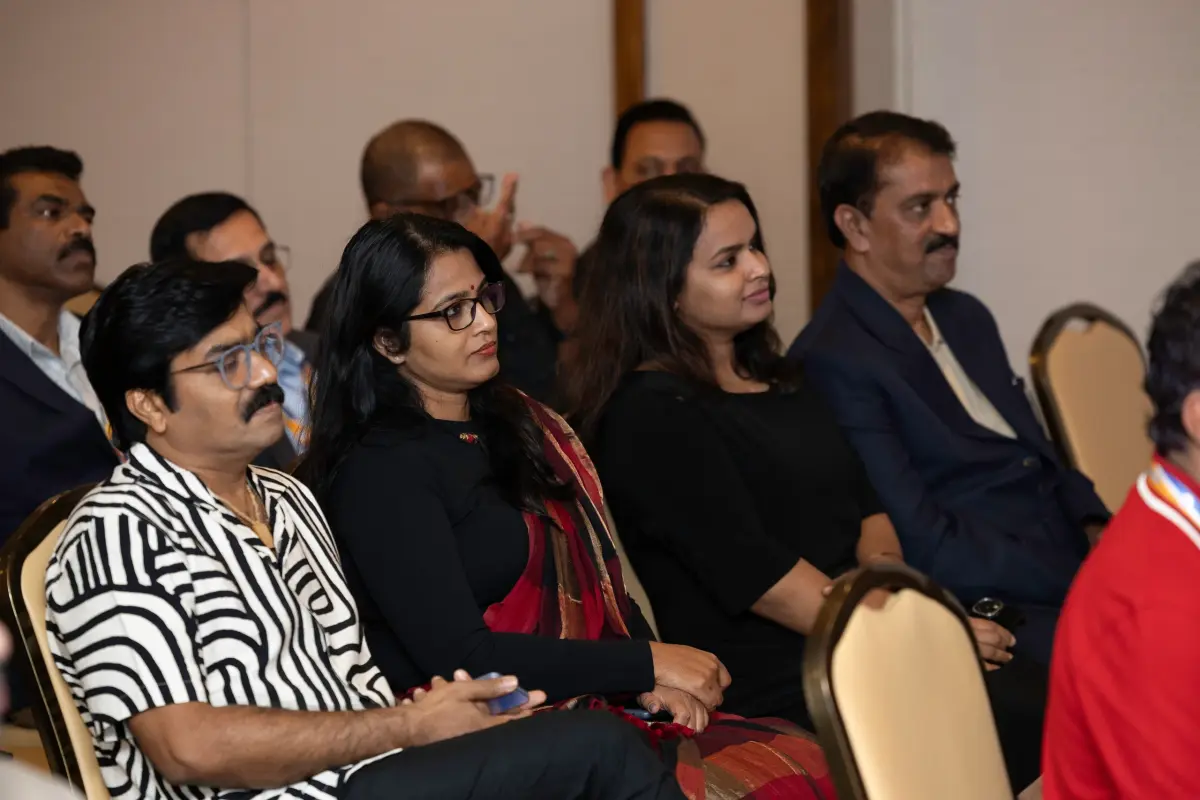 Participants at the Conference were part of insightful panel discussions, keynote speeches, and interactive sessions led by media experts, offering valuable perspectives on the evolving world of journalism. With digital transformation and press freedom remaining critical global issues, the conference facilitated discussions on key challenges and potential solutions shaping the future of journalism.
Participants at the Conference were part of insightful panel discussions, keynote speeches, and interactive sessions led by media experts, offering valuable perspectives on the evolving world of journalism. With digital transformation and press freedom remaining critical global issues, the conference facilitated discussions on key challenges and potential solutions shaping the future of journalism.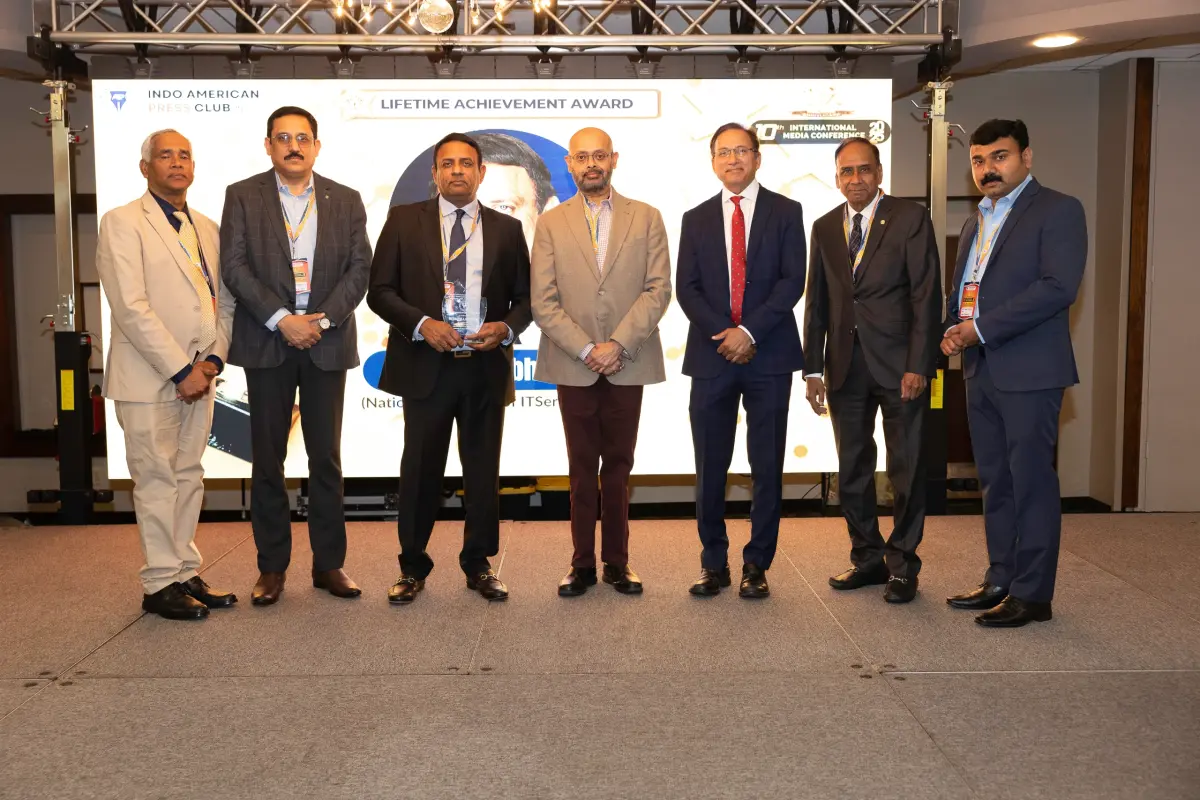 Dr. Vemuri S. Murthy is the co-investigator of a ground-breaking Cardiac Arrest Registry in India, “Warangal Area Cardiac Arrest Registry”. Dr. Murthy, a past President of the Chicago Medical Society and Indian American Medical Association (Illinois), has received several prestigious national and international awards and a Medal of US Congress as “Global Champion of Resuscitation” for his professional and community service contributions in the USA and India.
Dr. Vemuri S. Murthy is the co-investigator of a ground-breaking Cardiac Arrest Registry in India, “Warangal Area Cardiac Arrest Registry”. Dr. Murthy, a past President of the Chicago Medical Society and Indian American Medical Association (Illinois), has received several prestigious national and international awards and a Medal of US Congress as “Global Champion of Resuscitation” for his professional and community service contributions in the USA and India. The IAPC Souvenir Video edition was released after a video introduction by Dr. Mathew Joys, Chair of the Souvenir Committee and a short visual highlight of the souvenir on the screen, giving a glimpse of the beautifully curated content and memories it holds. In addition, the book “The Citizen Journalist,” written by Dr. Matthew Joys and providing guidelines for new media workers, was released by former Chairman Dr. Babu Stephen in the presence of eminent journalist Romi Mathew. The book is a compelling exploration of truth-telling in the modern world, blending insights from his rich experience in media, ethics, and civic engagement. Dr. Joys was then honored in absentia as one of the most prolific voices in the Indian American media community.
The IAPC Souvenir Video edition was released after a video introduction by Dr. Mathew Joys, Chair of the Souvenir Committee and a short visual highlight of the souvenir on the screen, giving a glimpse of the beautifully curated content and memories it holds. In addition, the book “The Citizen Journalist,” written by Dr. Matthew Joys and providing guidelines for new media workers, was released by former Chairman Dr. Babu Stephen in the presence of eminent journalist Romi Mathew. The book is a compelling exploration of truth-telling in the modern world, blending insights from his rich experience in media, ethics, and civic engagement. Dr. Joys was then honored in absentia as one of the most prolific voices in the Indian American media community.
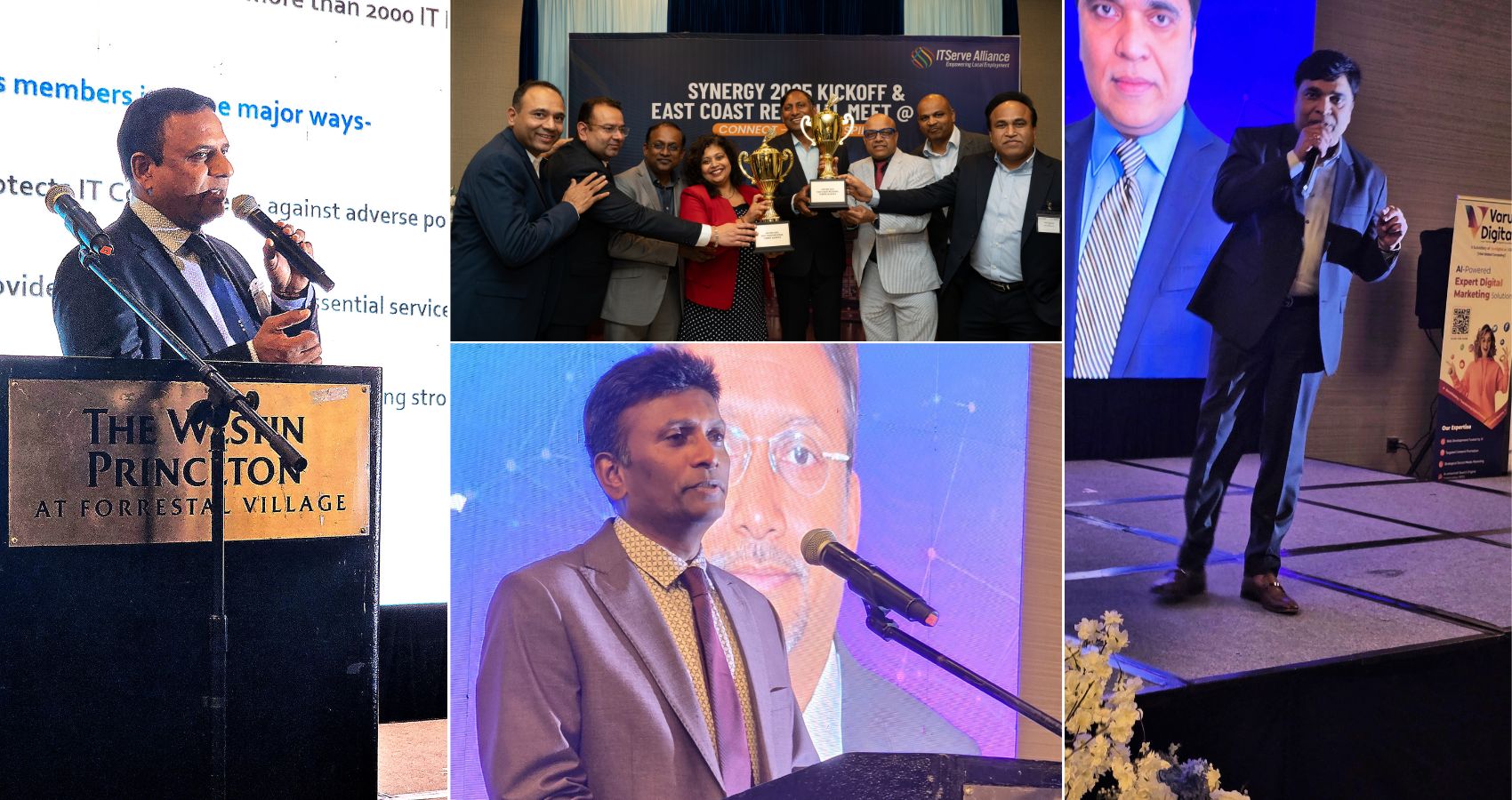
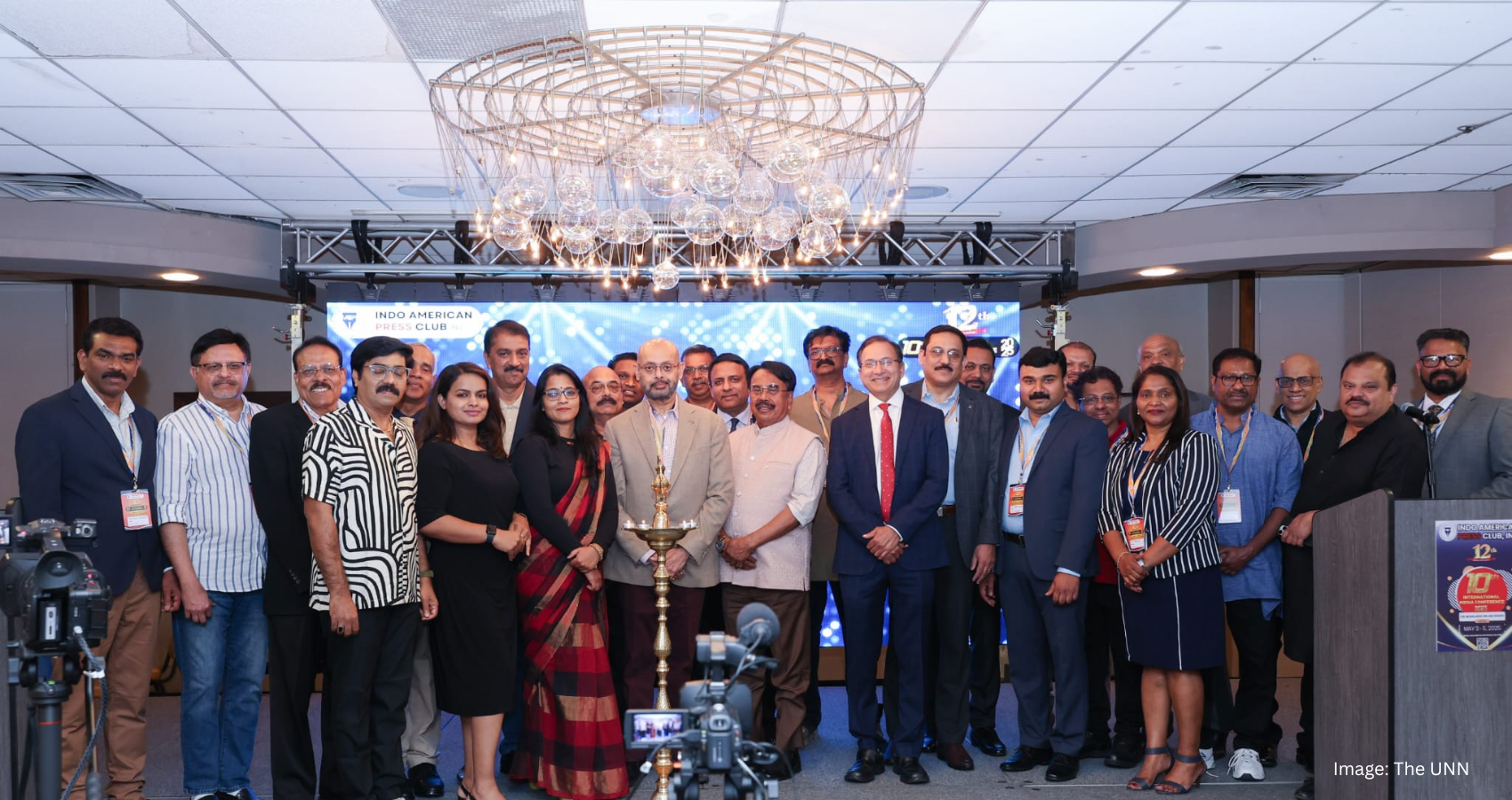
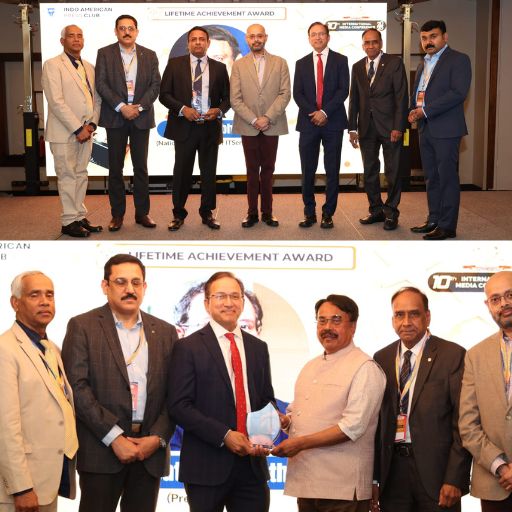
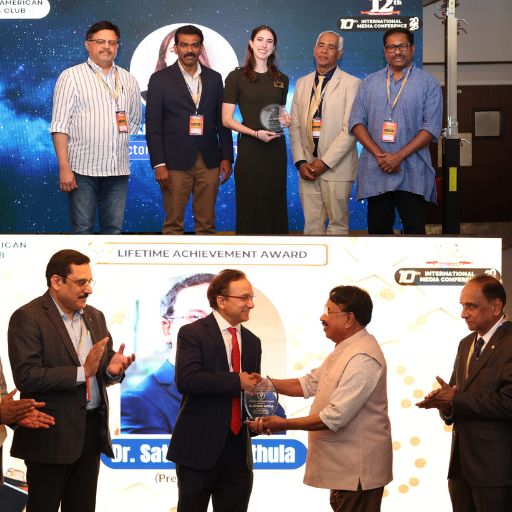
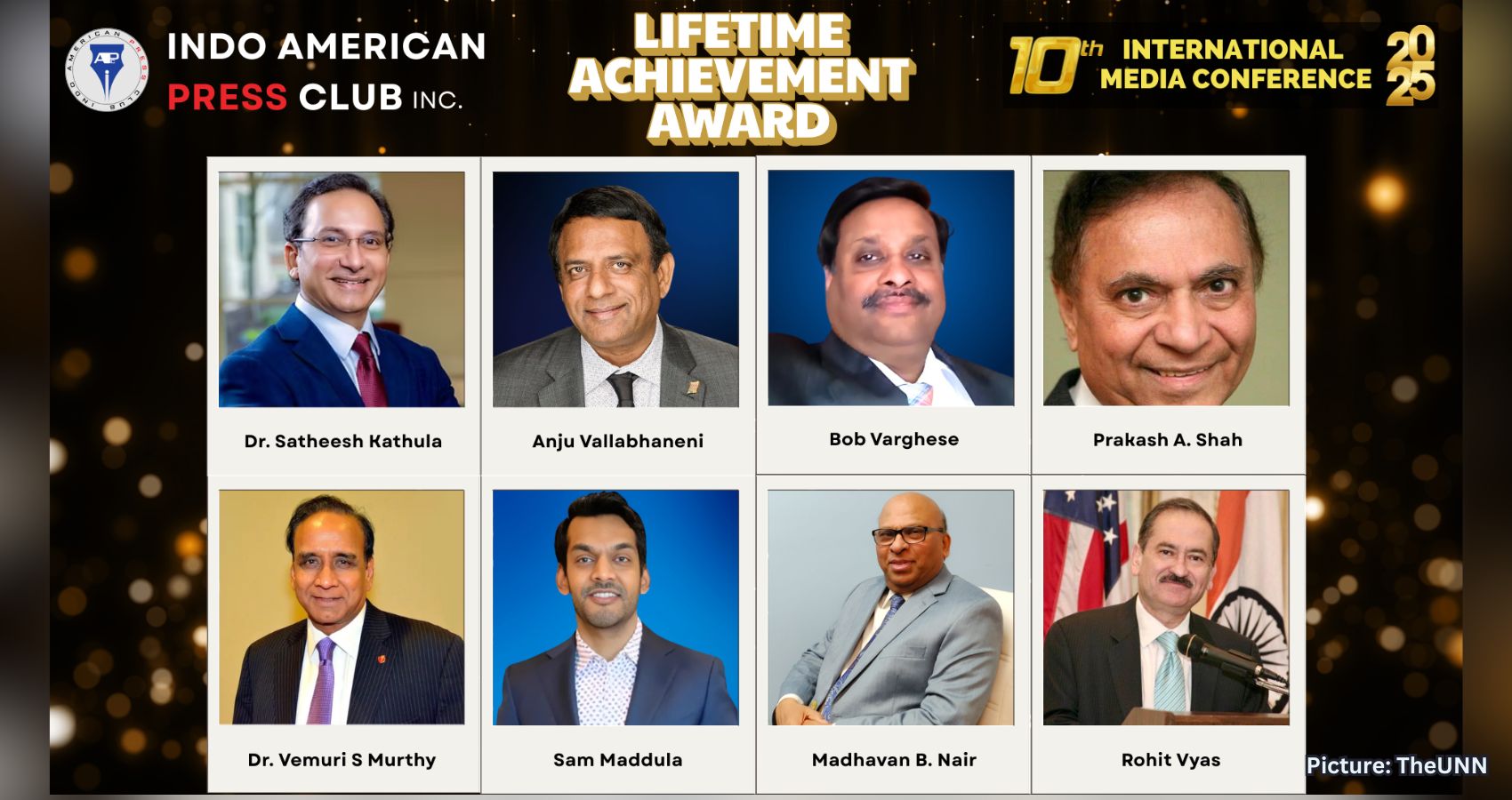






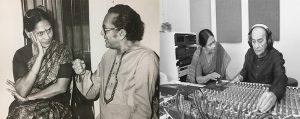

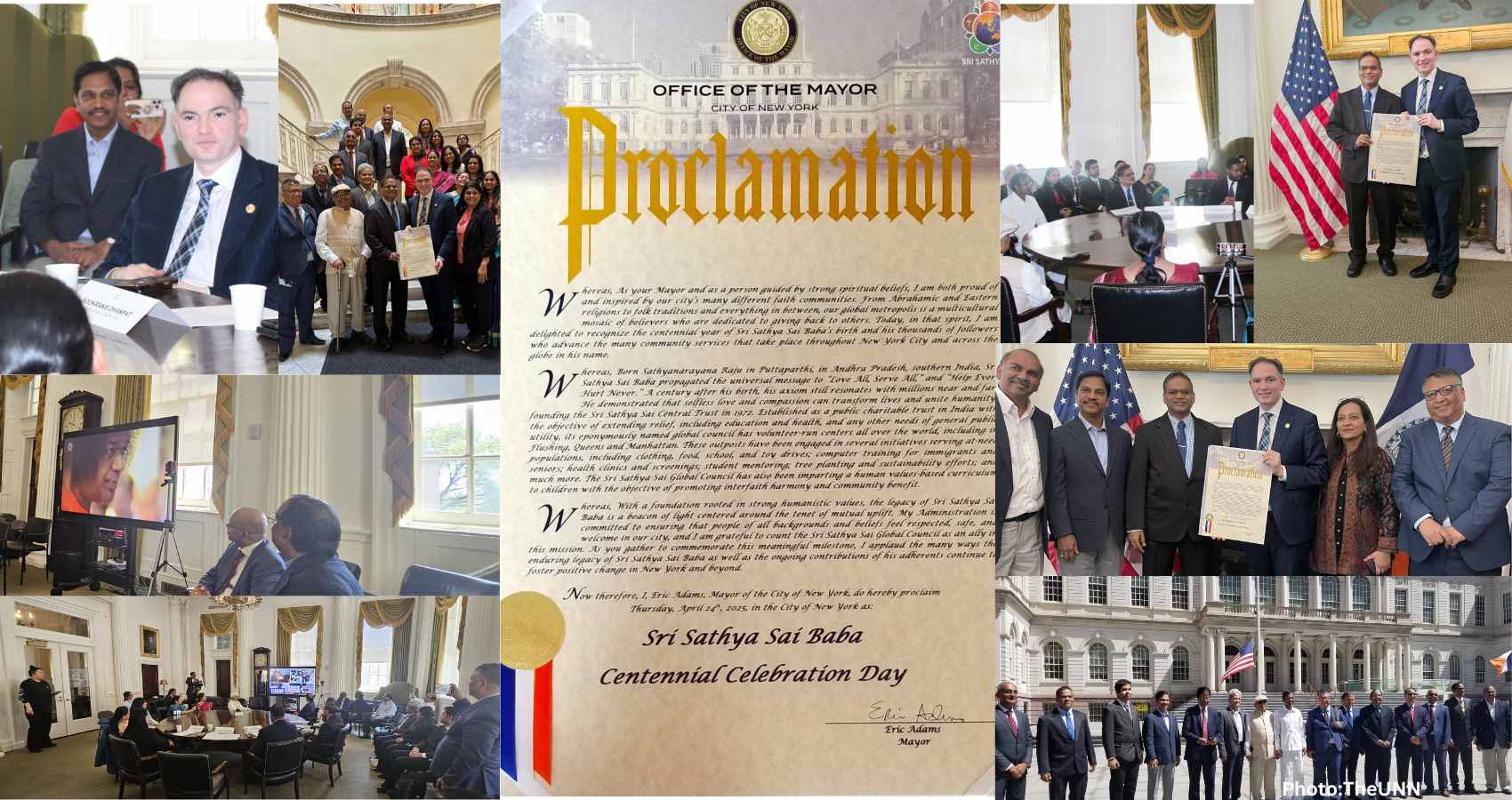
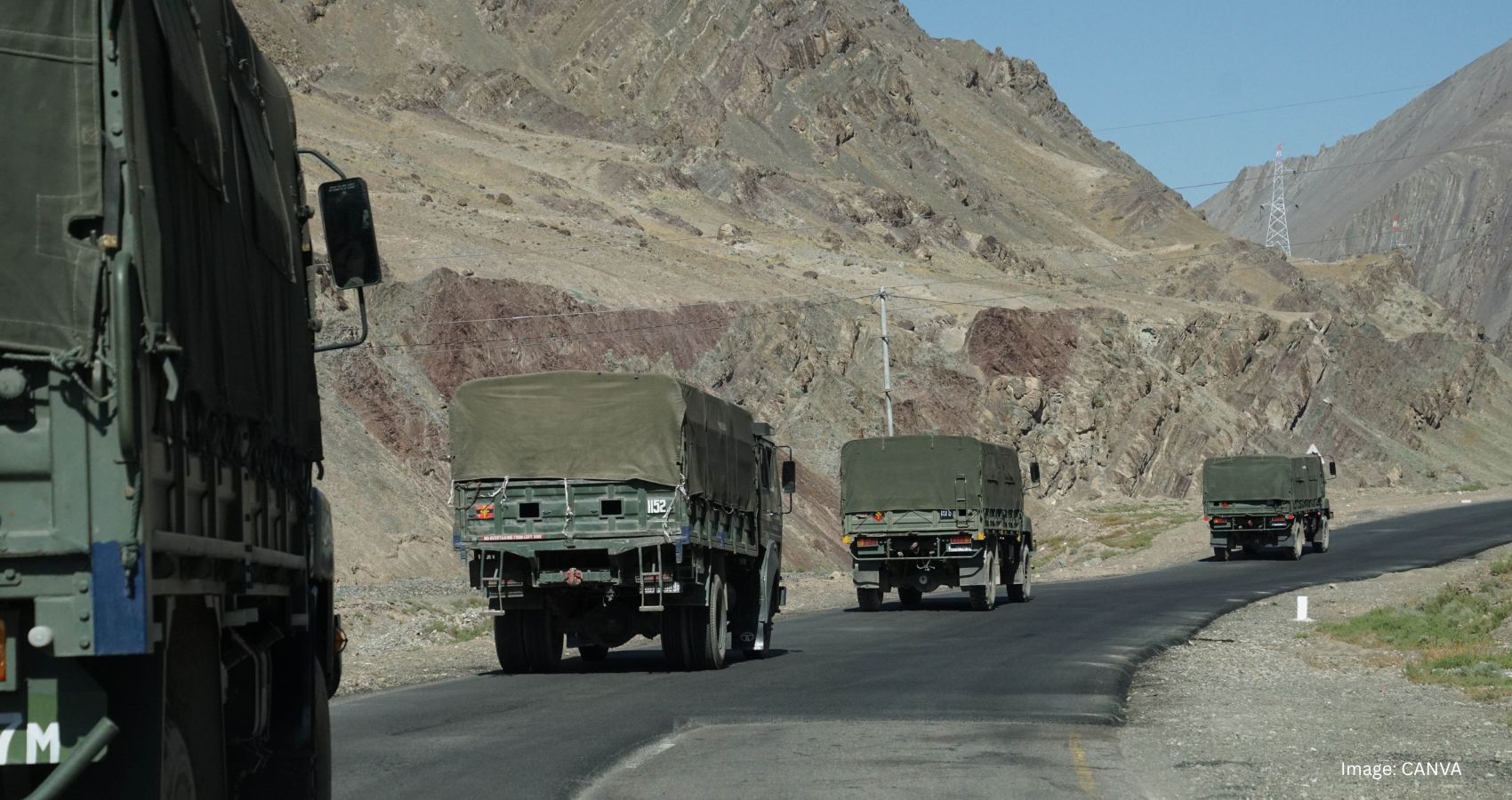
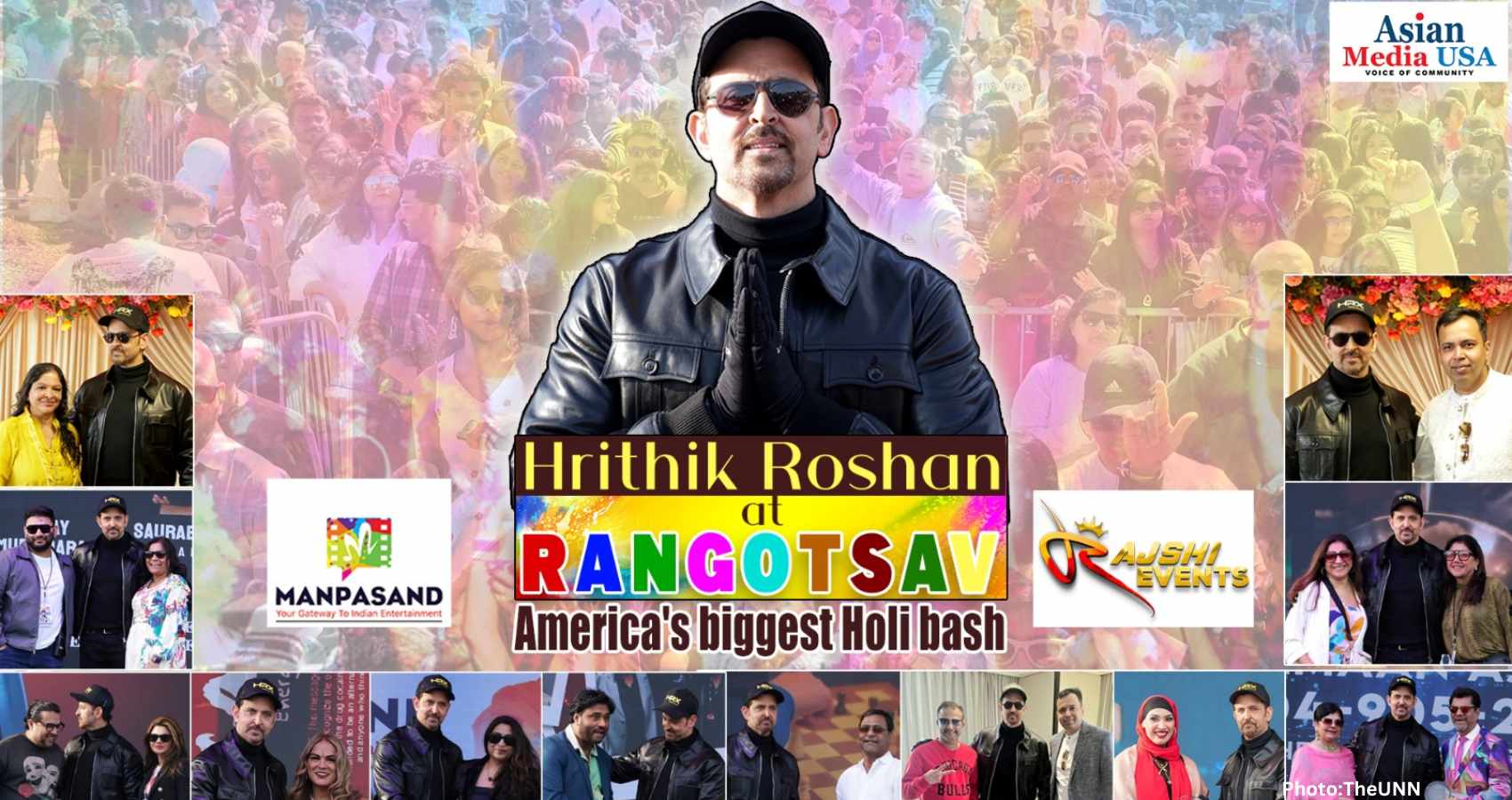



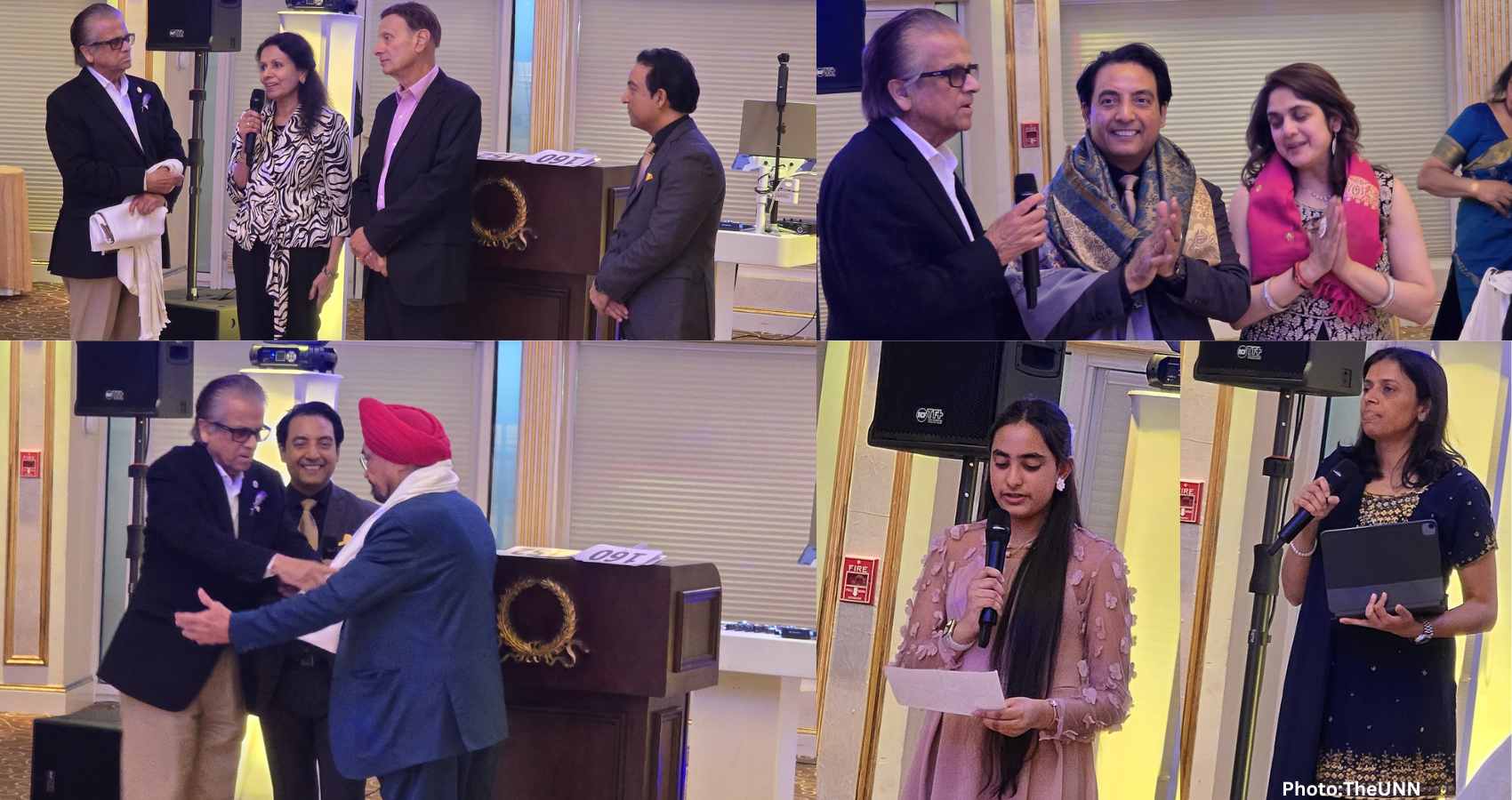

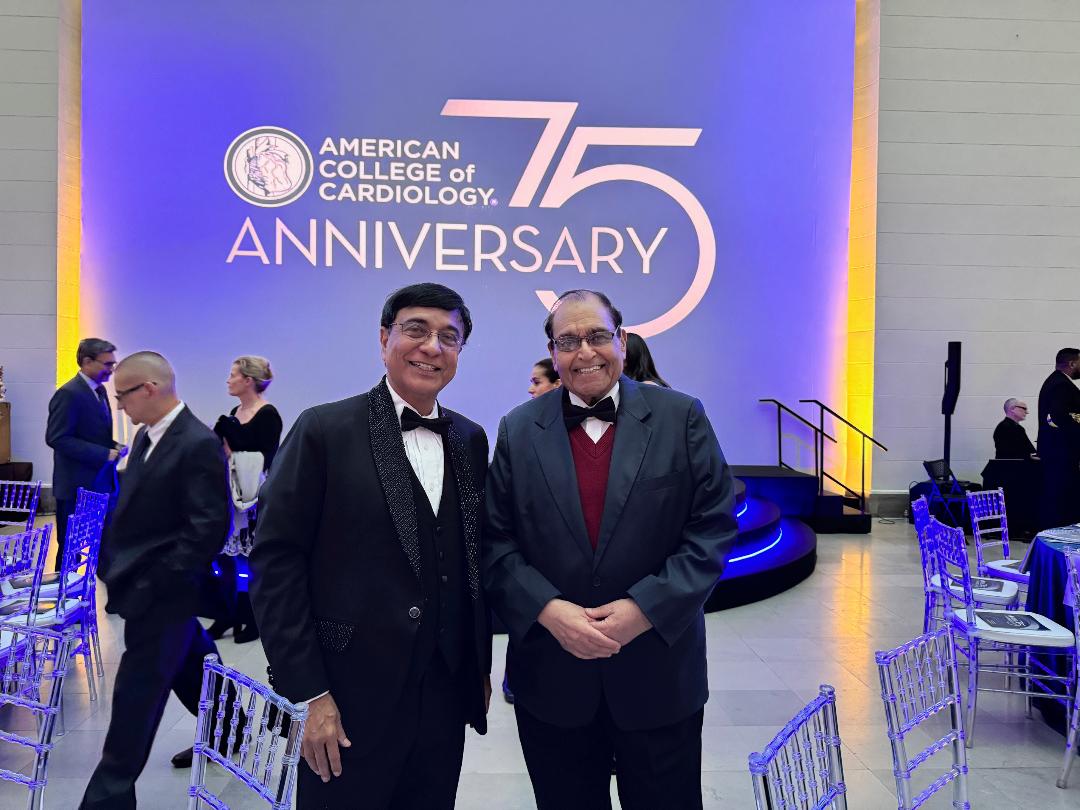

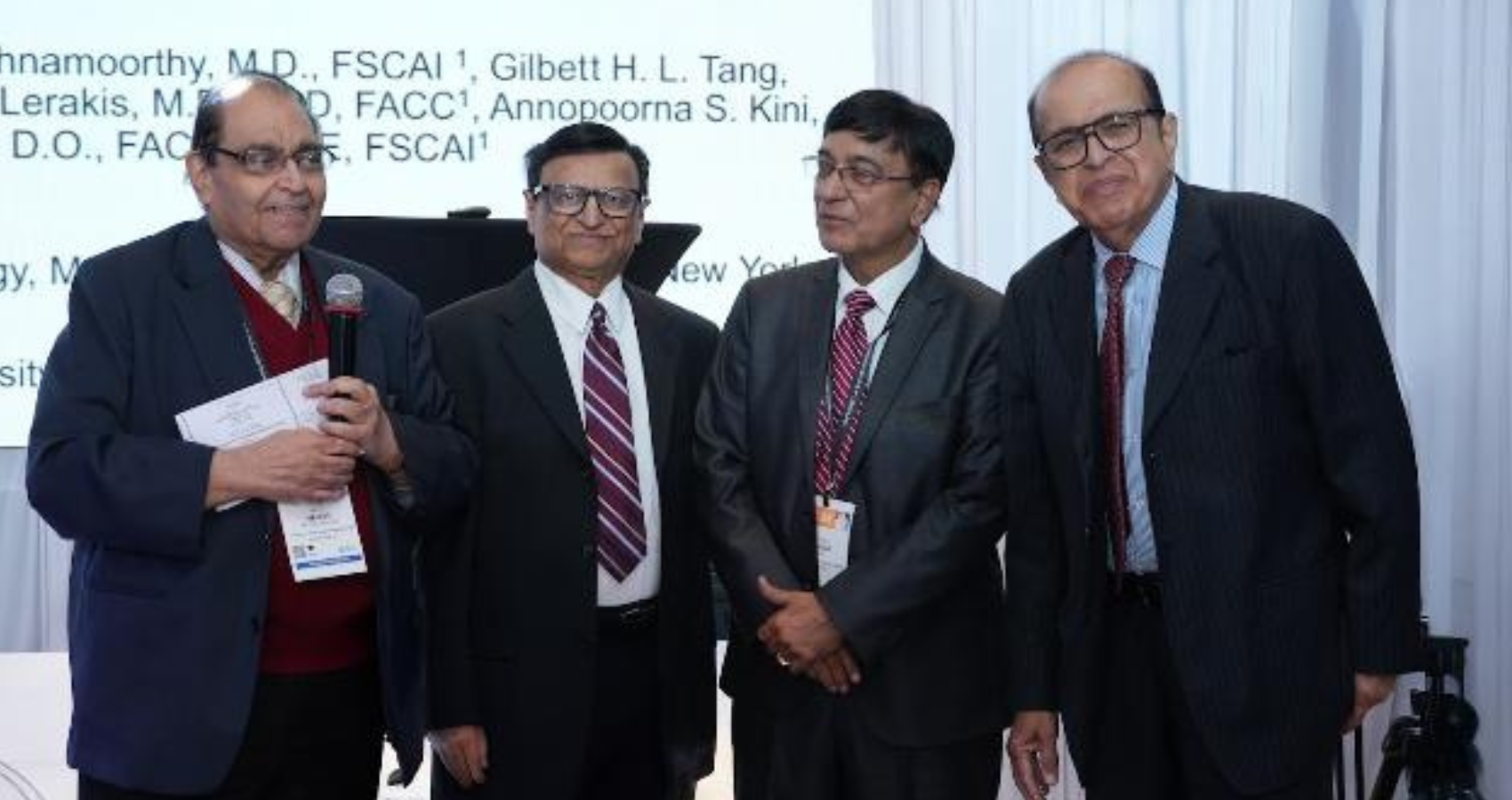
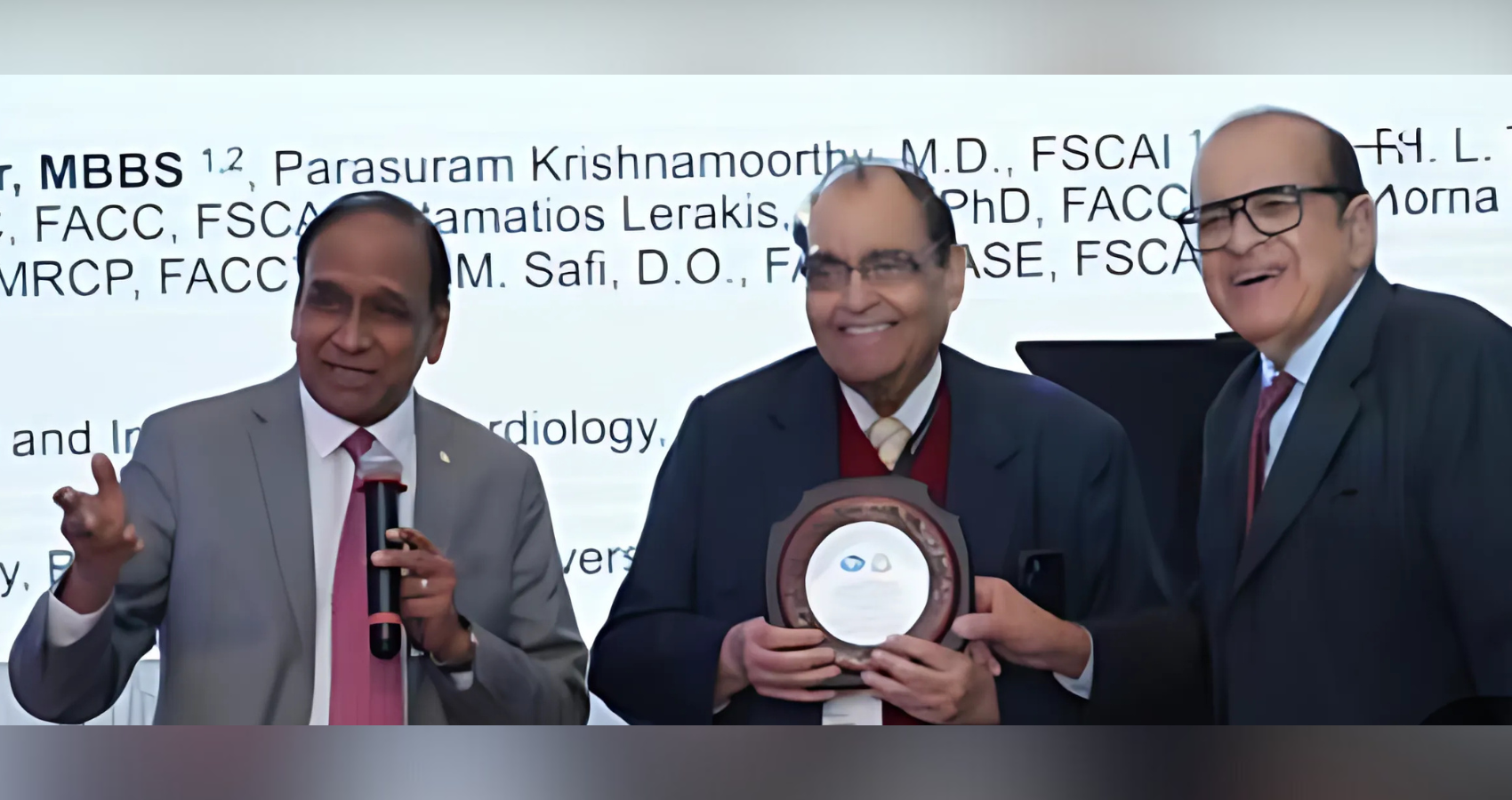


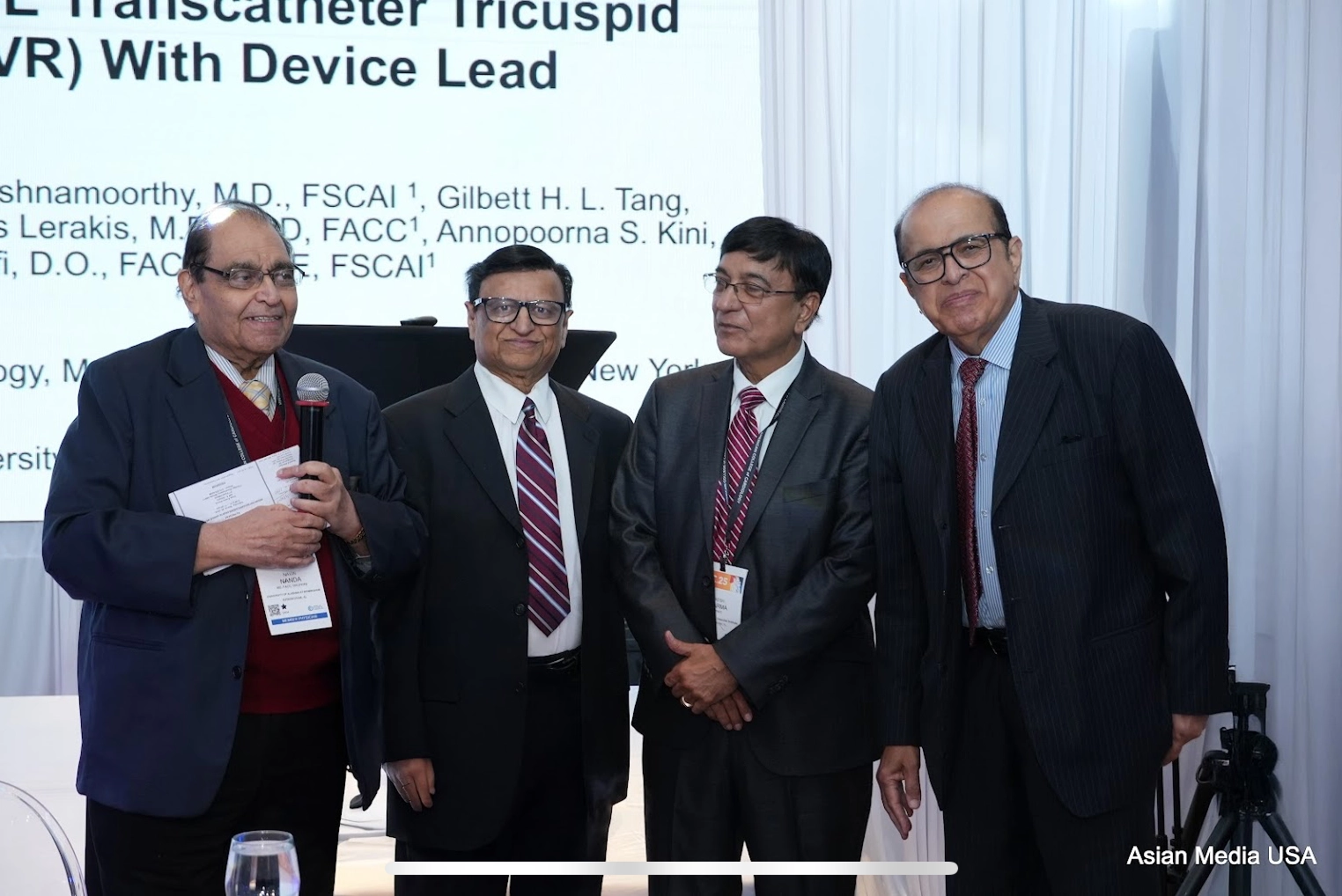














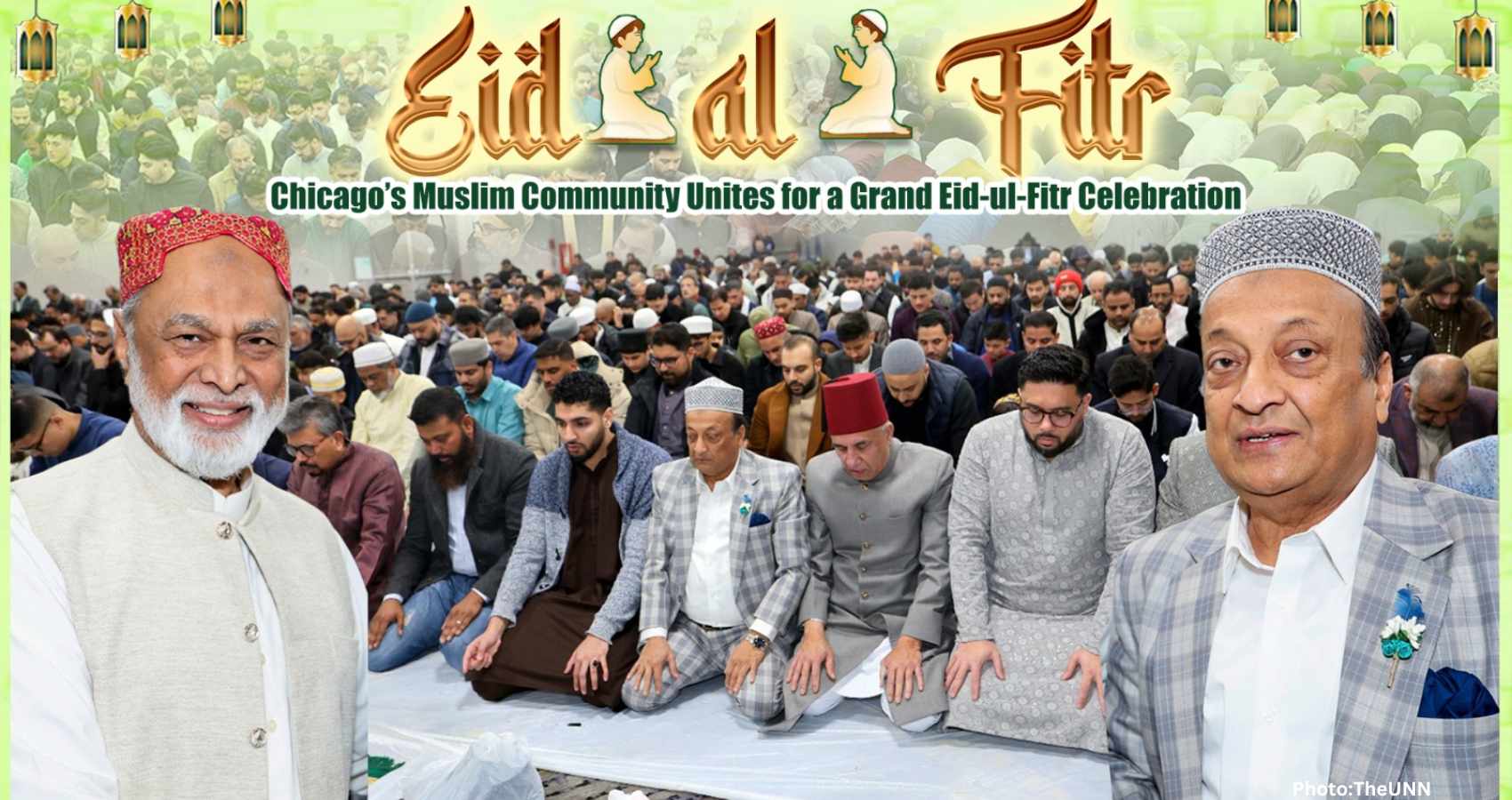















 Inspired by the AAPI New Jersey Chapter, the AAPI “Share a Blanket” Project was launched in 2019 with the objective of sharing warmth during the winter months with those in need. Since its inception, this initiative has become a cherished tradition, and we are proud to see that other local chapters have embraced similar efforts in their communities,” added Dr. Kathula.
Inspired by the AAPI New Jersey Chapter, the AAPI “Share a Blanket” Project was launched in 2019 with the objective of sharing warmth during the winter months with those in need. Since its inception, this initiative has become a cherished tradition, and we are proud to see that other local chapters have embraced similar efforts in their communities,” added Dr. Kathula. year,” said Dr. Raghu Lolabhattu, Chair, Share-The-Warmth program. “The winter season is a time for us to care and share again! Over the last few years, AAPI, along with several local chapters and some of our members, made tremendous efforts and helped numerous needy people by donating blankets, and we are proud to say that this was very well received by the targeted communities.”
year,” said Dr. Raghu Lolabhattu, Chair, Share-The-Warmth program. “The winter season is a time for us to care and share again! Over the last few years, AAPI, along with several local chapters and some of our members, made tremendous efforts and helped numerous needy people by donating blankets, and we are proud to say that this was very well received by the targeted communities.” Dr. Raj Bhayani, Secretary of AAPI, urged “all AAPI members to carry on this program in the coming years as well and make AAPI and our local organizations proud. We request that every one of you make a generous donation for this fund, and your contribution would surely give a great comfort to a needy person.”
Dr. Raj Bhayani, Secretary of AAPI, urged “all AAPI members to carry on this program in the coming years as well and make AAPI and our local organizations proud. We request that every one of you make a generous donation for this fund, and your contribution would surely give a great comfort to a needy person.”

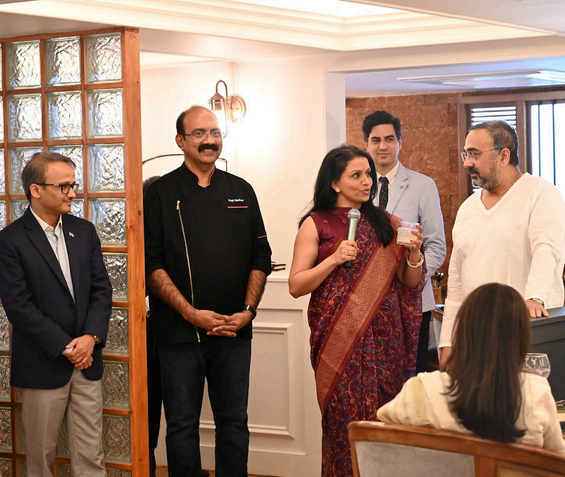








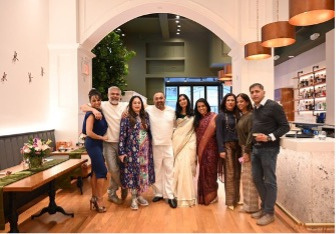


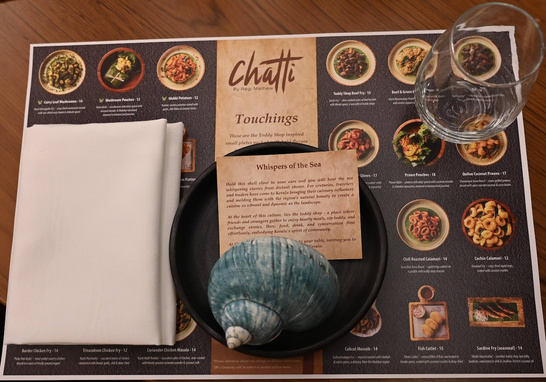





 The contestants will be judged in four categories, based on one’s Poise, Personality, Presentation, Performance, Style, Appearance, Intelligence and Confidence.
The contestants will be judged in four categories, based on one’s Poise, Personality, Presentation, Performance, Style, Appearance, Intelligence and Confidence.










 In the past five years, since he launched the movement to save the Earth from the effects of Batteries, Sri Nihal Tammana has been instrumental in recycling as many as 625,000+ batteries, preventing hazardous waste from polluting landfills. He has helped educate 40 million people through school programs, corporate workshops, and media outreach.
In the past five years, since he launched the movement to save the Earth from the effects of Batteries, Sri Nihal Tammana has been instrumental in recycling as many as 625,000+ batteries, preventing hazardous waste from polluting landfills. He has helped educate 40 million people through school programs, corporate workshops, and media outreach. Nihal’s mission has come to be recognized, winning him and his non-profit organization, Recycle My Battery, dozens of accolades and awards. Sri Nihal has been featured on CNN, BBC, TEDx, and several other major media platforms, helping to spread awareness globally.
Nihal’s mission has come to be recognized, winning him and his non-profit organization, Recycle My Battery, dozens of accolades and awards. Sri Nihal has been featured on CNN, BBC, TEDx, and several other major media platforms, helping to spread awareness globally. Nihal plans to major in environmental science in college and eventually invent his own eco-friendly battery. “I want to study Physics and Chemistry and learn about the environmental impacts on the Earth like climate change and everything. So I can use all this to make my own eco-friendly battery, which will use 0% of harmful chemicals and it will be able to be thrown away into the trash. So, it will be good for performance and for all of us to enjoy all the environment and the Earth will also enjoy it as well as it will be very sustainable. I will learn more engineering and environmental science so I can use all the things which I’ve learned to benefit all.”
Nihal plans to major in environmental science in college and eventually invent his own eco-friendly battery. “I want to study Physics and Chemistry and learn about the environmental impacts on the Earth like climate change and everything. So I can use all this to make my own eco-friendly battery, which will use 0% of harmful chemicals and it will be able to be thrown away into the trash. So, it will be good for performance and for all of us to enjoy all the environment and the Earth will also enjoy it as well as it will be very sustainable. I will learn more engineering and environmental science so I can use all the things which I’ve learned to benefit all.”

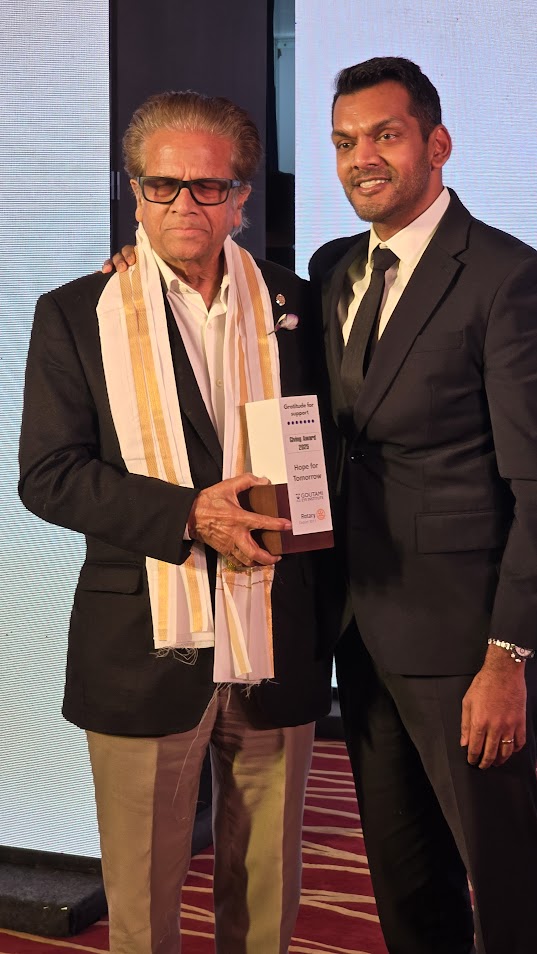 His story is one of purpose. impact, and a relentless commitment to building a brighter future for all. He was born in a rural Indian village with severe visual impairment. Today, Sam Maddula is on a mission to create a transformative impact on healthcare and society
His story is one of purpose. impact, and a relentless commitment to building a brighter future for all. He was born in a rural Indian village with severe visual impairment. Today, Sam Maddula is on a mission to create a transformative impact on healthcare and society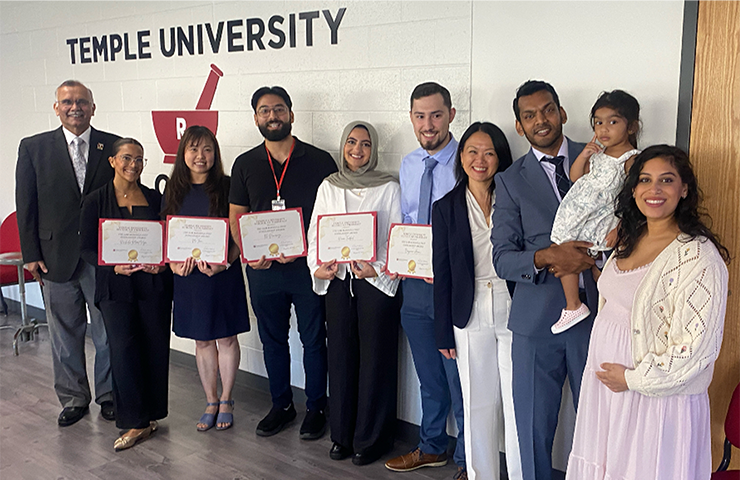 A passionate advocate for giving back, Sam has made significant contributions to organizations like the Eye Foundation of America and he continues to mentor aspiring pharmacists, fostering the next generation of leaders. He serves on the boards of numerous non-profits and civic organizations, leveraging his resources to advocate for a more equitable world
A passionate advocate for giving back, Sam has made significant contributions to organizations like the Eye Foundation of America and he continues to mentor aspiring pharmacists, fostering the next generation of leaders. He serves on the boards of numerous non-profits and civic organizations, leveraging his resources to advocate for a more equitable world Sam believes that “It is our duty to do more as we give as we get more. I am a living example of what we can be, of what can be achieved when we collectively decide to make a difference in the world. I am not a statistic. I am a human being that is here because people like you 40 years ago decided to make a difference. The next person we say from blindness might be an astronomer, a farmer, a doctor, or just an ordinary person telling you his life story, because someone decided to make a difference. You do not need to move mountains to do good. You just need to care a little bit. You don’t need to do a lot, do a little and maybe a little bit more. And before you know it, you saved a child from blindness.”
Sam believes that “It is our duty to do more as we give as we get more. I am a living example of what we can be, of what can be achieved when we collectively decide to make a difference in the world. I am not a statistic. I am a human being that is here because people like you 40 years ago decided to make a difference. The next person we say from blindness might be an astronomer, a farmer, a doctor, or just an ordinary person telling you his life story, because someone decided to make a difference. You do not need to move mountains to do good. You just need to care a little bit. You don’t need to do a lot, do a little and maybe a little bit more. And before you know it, you saved a child from blindness.”














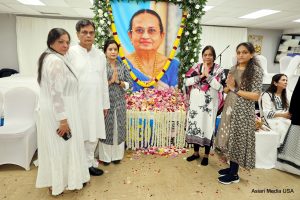


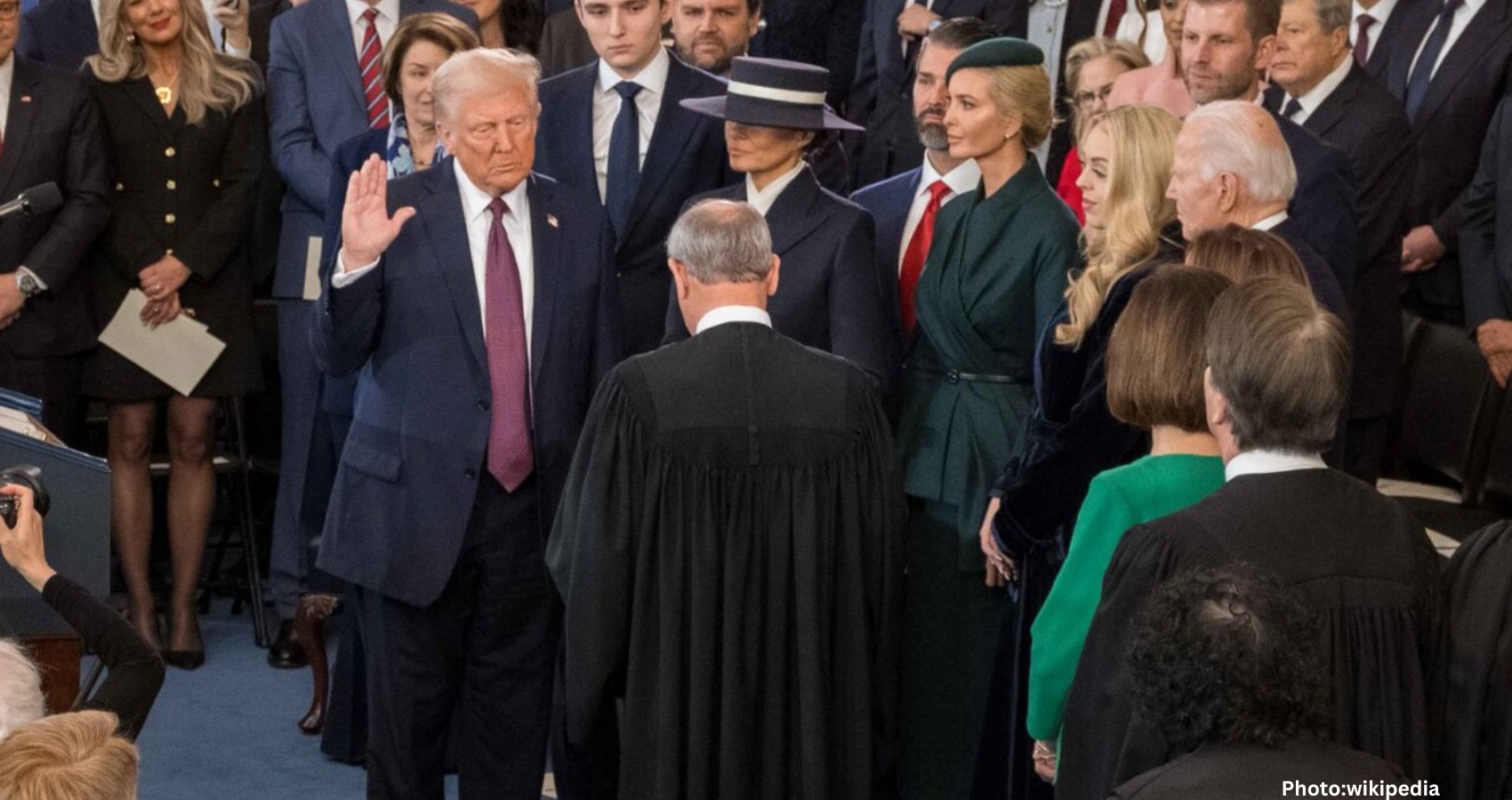


 Indo-American Press Club (IAPC) is a fast-growing syndicate of print, visual, online, and electronic media journalists and other media-related professionals of Indian origin working in the United States, Canada, and Europe. IAPC is committed to enhancing the working conditions of our journalists, exchanging ideas, and offering educational and training opportunities to our members, aspiring young journalists, and media professionals around the globe; and also by honoring media people for their excellence, and for bringing positive changes through their dedicated service among the community. Today IAPC envisages its vision through collective efforts and advocacy activities through its 15 Chapters across the US and Canada, in the larger public sphere. Visit
Indo-American Press Club (IAPC) is a fast-growing syndicate of print, visual, online, and electronic media journalists and other media-related professionals of Indian origin working in the United States, Canada, and Europe. IAPC is committed to enhancing the working conditions of our journalists, exchanging ideas, and offering educational and training opportunities to our members, aspiring young journalists, and media professionals around the globe; and also by honoring media people for their excellence, and for bringing positive changes through their dedicated service among the community. Today IAPC envisages its vision through collective efforts and advocacy activities through its 15 Chapters across the US and Canada, in the larger public sphere. Visit 
















 Sam shared his life story with the audience during a Fund Raiser organized by
Sam shared his life story with the audience during a Fund Raiser organized by  training 500 healthcare professionals in
training 500 healthcare professionals in  Lord Rami Ranger, a well-known philanthropist, and successful businessman from the United Kingdom, while echoing the mission of EFA said, “Childhood blindness is a solvable problem, but it requires our collective action.” According to
Lord Rami Ranger, a well-known philanthropist, and successful businessman from the United Kingdom, while echoing the mission of EFA said, “Childhood blindness is a solvable problem, but it requires our collective action.” According to 

 Deliver life-saving Retinopathy of Prematurity screenings and treatments to premature infants.
Deliver life-saving Retinopathy of Prematurity screenings and treatments to premature infants.
 Organized by a team of young Medical Students and Residents of Indian origin, the Medical Scholars Summit was planned and organized by an MSRF Executive Board, led by Priya Uppal, President of MSRF; Priyanka Kolli, President-Elect; Sohi Mistry, Vice President; Priyal Shah, Treasurer; and Drishti Patel, Secretary of MSRF.
Organized by a team of young Medical Students and Residents of Indian origin, the Medical Scholars Summit was planned and organized by an MSRF Executive Board, led by Priya Uppal, President of MSRF; Priyanka Kolli, President-Elect; Sohi Mistry, Vice President; Priyal Shah, Treasurer; and Drishti Patel, Secretary of MSRF. event, with highlights that included our residency and fellowship panel – where attendees had the opportunity to ask questions directly of these program directors from a variety of surgical and non-surgical specialties, our medical school admissions Q&A from the Dean of Warren Alpert Medical School of Brown University, and an MCAT advice lecture from a 520+ scorer.”
event, with highlights that included our residency and fellowship panel – where attendees had the opportunity to ask questions directly of these program directors from a variety of surgical and non-surgical specialties, our medical school admissions Q&A from the Dean of Warren Alpert Medical School of Brown University, and an MCAT advice lecture from a 520+ scorer.” “The 2-day-long Summit was packed with academic sessions that were interactive, with participants having an opportunity to actively engage in discussions and enhance their knowledge on a wide range of topics relevant to Medical Students and Residents, who seek guidance on ways to pursue their careers most effectively,” said Dr. Sunil Kaza, Chair of APPI BOT.
“The 2-day-long Summit was packed with academic sessions that were interactive, with participants having an opportunity to actively engage in discussions and enhance their knowledge on a wide range of topics relevant to Medical Students and Residents, who seek guidance on ways to pursue their careers most effectively,” said Dr. Sunil Kaza, Chair of APPI BOT. Modi offered insights on Financial Wellness. Samir Pancholy, MD led a session on Service Project Pursuing Graduate Medical Education. Global Medicine and India: Lessons, Opportunities, and Challenges for the Next Generation of Physicians was presented by Dr. Kumar Belani, MD.
Modi offered insights on Financial Wellness. Samir Pancholy, MD led a session on Service Project Pursuing Graduate Medical Education. Global Medicine and India: Lessons, Opportunities, and Challenges for the Next Generation of Physicians was presented by Dr. Kumar Belani, MD. Dr. Raj Bhayani, Secretary of AAPI pointed out that, “In addition to several programs in the United States and in India, AAPI has been in the forefront, advocating for the interests of the medical fraternity and organizing regular CME programs, health & wellness events, and financial workshops for its members and outreach, public health education, and advocacy activities for the community both locally and internationally.”
Dr. Raj Bhayani, Secretary of AAPI pointed out that, “In addition to several programs in the United States and in India, AAPI has been in the forefront, advocating for the interests of the medical fraternity and organizing regular CME programs, health & wellness events, and financial workshops for its members and outreach, public health education, and advocacy activities for the community both locally and internationally.”




 The program was designed and directed by Dr.Vemuri S Murthy, a renowned Indo-US Resuscitation Medicine expert from the Department of Emergency Medicine, University of Illinois College of Medicine, Chicago, Illinois, and an alumnus of Guntur Medical College.
The program was designed and directed by Dr.Vemuri S Murthy, a renowned Indo-US Resuscitation Medicine expert from the Department of Emergency Medicine, University of Illinois College of Medicine, Chicago, Illinois, and an alumnus of Guntur Medical College. for international collaborations in the healthcare sector to enhance outcomes of Heart Emergencies and Sudden Cardiac Arrests which are more prevalent among Indians and the Indian Diaspora.
for international collaborations in the healthcare sector to enhance outcomes of Heart Emergencies and Sudden Cardiac Arrests which are more prevalent among Indians and the Indian Diaspora.
 In this context, The American Association of Physicians of Indian Origin (AAPI), in collaboration with Heartfulness Meditation and the American Heart Association, embarked on a mission to educate and train its members and provide opportunities to promote self-care, improve physician wellness, and reduce burnout, with focus on lifestyle modifications in the treatment of chronic diseases, including cancer, at Kanha Shanti Vanam in Hyderabad, Telangana, India on
In this context, The American Association of Physicians of Indian Origin (AAPI), in collaboration with Heartfulness Meditation and the American Heart Association, embarked on a mission to educate and train its members and provide opportunities to promote self-care, improve physician wellness, and reduce burnout, with focus on lifestyle modifications in the treatment of chronic diseases, including cancer, at Kanha Shanti Vanam in Hyderabad, Telangana, India on 
 The MSRF & PreMed Medical Scholars Summit is led by an Executive Board comprising of Manan Pancholy, President; Rohan Chopra, Vice President; Prerak Shah, Secretary; Arjun Gangasani, Treasurer.
The MSRF & PreMed Medical Scholars Summit is led by an Executive Board comprising of Manan Pancholy, President; Rohan Chopra, Vice President; Prerak Shah, Secretary; Arjun Gangasani, Treasurer. Niraj Kothari, MD will present his insightful session on Pioneering Advanced Practices in Medicine, while Deepen Modi will offer insights on Financial Wellness. Samir Pancholy, MD will lead a session on Service Project Pursuing Graduate Medical Education. Global Medicine and India: Lessons, Opportunities, and Challenges for the Next Generation of Physicians will be presented by Dr. Kumar Belani, MD.
Niraj Kothari, MD will present his insightful session on Pioneering Advanced Practices in Medicine, while Deepen Modi will offer insights on Financial Wellness. Samir Pancholy, MD will lead a session on Service Project Pursuing Graduate Medical Education. Global Medicine and India: Lessons, Opportunities, and Challenges for the Next Generation of Physicians will be presented by Dr. Kumar Belani, MD. Dr. Raj Bhayani, Secretary of AAPI pointed out that, “In addition to several programs in the United States and in India, AAPI has been in the forefront, advocating for the interests of the medical fraternity and organizing regular CME programs, health & wellness events, and financial workshops for its members and outreach, public health education, and advocacy activities for the community both locally and internationally.”
Dr. Raj Bhayani, Secretary of AAPI pointed out that, “In addition to several programs in the United States and in India, AAPI has been in the forefront, advocating for the interests of the medical fraternity and organizing regular CME programs, health & wellness events, and financial workshops for its members and outreach, public health education, and advocacy activities for the community both locally and internationally.”
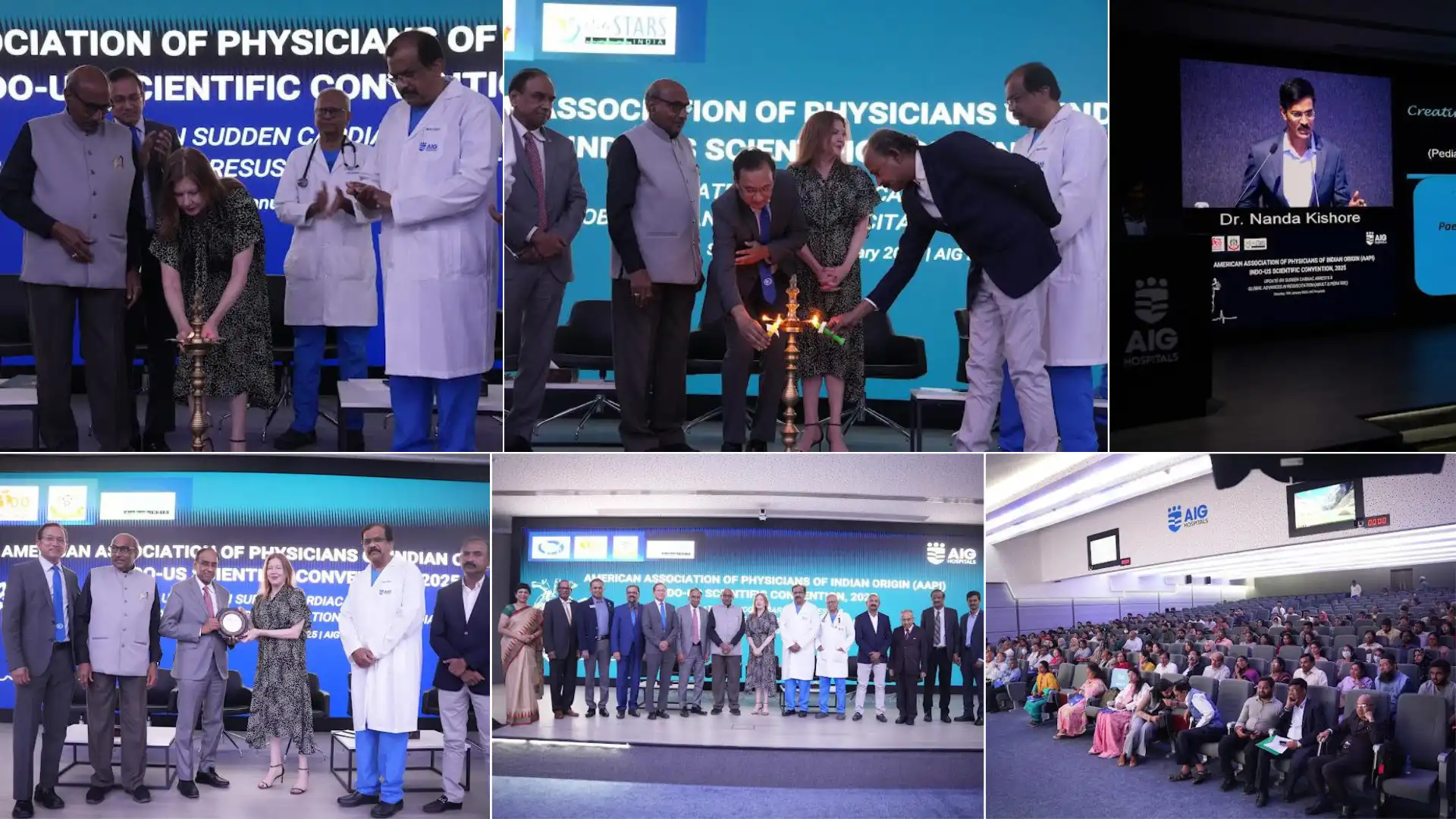 Pointing to studies, Dr. Kathula said that almost one in three in this group may die from heart disease before 65 years of age. In India, heart disease remains the number one cause of death. Common risk factors are smoking and a diet high in sugar, salt, refined grains, and fat. A large number of South Asians appear to have “insulin resistance”, a condition in which the body does not utilize insulin efficiently, resulting in Diabetes, which leads to a significant number of heart-related problems. Lack of adequate exercise, stress, and genetic predisposition are also contributing factors.
Pointing to studies, Dr. Kathula said that almost one in three in this group may die from heart disease before 65 years of age. In India, heart disease remains the number one cause of death. Common risk factors are smoking and a diet high in sugar, salt, refined grains, and fat. A large number of South Asians appear to have “insulin resistance”, a condition in which the body does not utilize insulin efficiently, resulting in Diabetes, which leads to a significant number of heart-related problems. Lack of adequate exercise, stress, and genetic predisposition are also contributing factors.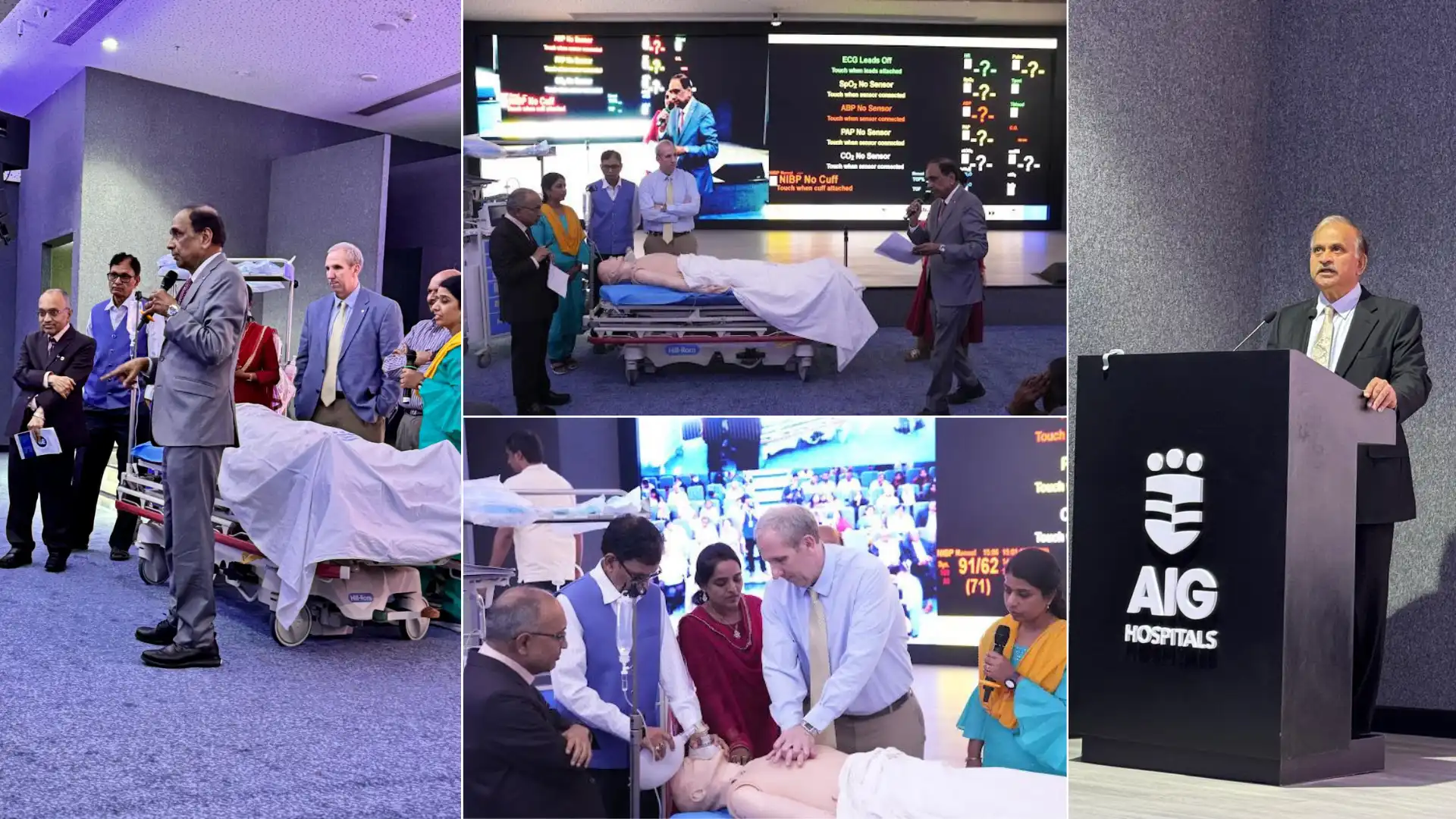 The Honorable Consul General of the U.S. in Hyderabad, Jennifer Larson, was the chief guest and spoke highly of the contributions of Indian physicians in the U.S. and their vital role in the American healthcare system. Dr. Nageshwar Reddy, chief of AIG, addressed the audience, praising AAPI’s efforts.
The Honorable Consul General of the U.S. in Hyderabad, Jennifer Larson, was the chief guest and spoke highly of the contributions of Indian physicians in the U.S. and their vital role in the American healthcare system. Dr. Nageshwar Reddy, chief of AIG, addressed the audience, praising AAPI’s efforts.


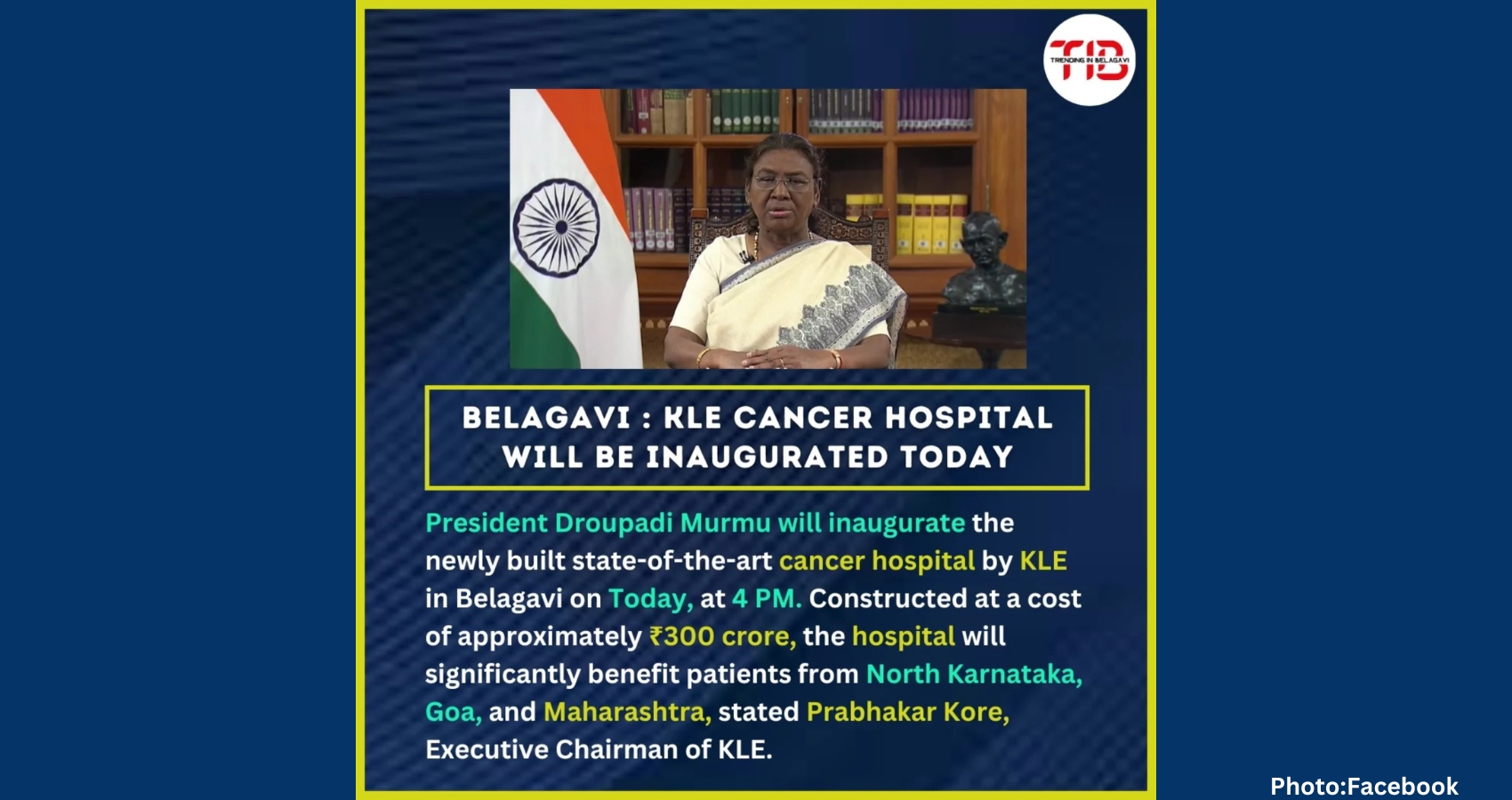



 Dr. Sampat Shivangi is a distinguished Indian American physician, philanthropist, and community leader with a profound impact on healthcare, education, and cultural preservation across India and the United States.
Dr. Sampat Shivangi is a distinguished Indian American physician, philanthropist, and community leader with a profound impact on healthcare, education, and cultural preservation across India and the United States. and spiritual hub for the Hindu community and beyond. Recognized for his exemplary service, a street in Mississippi bears his name, a testament to his contributions to healthcare and community welfare.
and spiritual hub for the Hindu community and beyond. Recognized for his exemplary service, a street in Mississippi bears his name, a testament to his contributions to healthcare and community welfare. It took him lots of reflection, planning, and working with multiple groups before this noble project conceived in his heart several years ago, has now come to fulfillment. “Believe me, I went to my hometown in Karnataka to set up a Cancer Hospital. I had even formed a committee and raised funds. Made several trips to India and struggled to do something good, but returned home empty-handed.”
It took him lots of reflection, planning, and working with multiple groups before this noble project conceived in his heart several years ago, has now come to fulfillment. “Believe me, I went to my hometown in Karnataka to set up a Cancer Hospital. I had even formed a committee and raised funds. Made several trips to India and struggled to do something good, but returned home empty-handed.” and tireless efforts that every individual deserves an opportunity to thrive, and is a beacon of hope, fostering resilience and building a more inclusive and harmonious world for all.
and tireless efforts that every individual deserves an opportunity to thrive, and is a beacon of hope, fostering resilience and building a more inclusive and harmonious world for all. At the heart of societal transformation, the Dr. Sampat Shivangi Foundation stands as a testament to unwavering commitment and compassion. The foundation is built upon the pillars of education, healthcare, mental well-being, tribal support, women’s empowerment, and sports development. With a profound understanding of the multifaceted needs of underprivileged communities, we have designed a range of initiatives that address these vital aspects of human well-being.
At the heart of societal transformation, the Dr. Sampat Shivangi Foundation stands as a testament to unwavering commitment and compassion. The foundation is built upon the pillars of education, healthcare, mental well-being, tribal support, women’s empowerment, and sports development. With a profound understanding of the multifaceted needs of underprivileged communities, we have designed a range of initiatives that address these vital aspects of human well-being. Civil Nuclear Agreement, collaborating with President George W. Bush to strengthen ties between the two nations. His commitment to India is further reflected in his coordination efforts with the White House to lift sanctions against India during President Bill Clinton’s administration.
Civil Nuclear Agreement, collaborating with President George W. Bush to strengthen ties between the two nations. His commitment to India is further reflected in his coordination efforts with the White House to lift sanctions against India during President Bill Clinton’s administration. Stressing the importance of registering for the Bone Marro donation, Dr. Suni Kaza, Chair of AAPI BOT said, “You could be a patient’s only match-their only hope for a cure. When you register, you’re committing to donating to any patient in the world. But because a decision not to donate can be life-threatening to the patient, please think seriously about your commitment before joining the registry. And, be aware that there are absolutely no complications to the donor from this donation procedure.”
Stressing the importance of registering for the Bone Marro donation, Dr. Suni Kaza, Chair of AAPI BOT said, “You could be a patient’s only match-their only hope for a cure. When you register, you’re committing to donating to any patient in the world. But because a decision not to donate can be life-threatening to the patient, please think seriously about your commitment before joining the registry. And, be aware that there are absolutely no complications to the donor from this donation procedure.” Among the many initiatives Dr. Raju has undertaken, the upcoming Fundraiser in New Delhi is a pan-India Roll Out Program with the objective of raising $500,000, which will be matched by the Eye Foundation of America. The funds raised will be utilized towards establishing 100 ROP screening centers across India; Training 500 healthcare professionals in ROP screening and treatment; and, Treating 10,000 ROP-affected babies annually across India.
Among the many initiatives Dr. Raju has undertaken, the upcoming Fundraiser in New Delhi is a pan-India Roll Out Program with the objective of raising $500,000, which will be matched by the Eye Foundation of America. The funds raised will be utilized towards establishing 100 ROP screening centers across India; Training 500 healthcare professionals in ROP screening and treatment; and, Treating 10,000 ROP-affected babies annually across India.  For the past four decades, Dr. Raju and the EFA have been actively and tirelessly on a crusade to eliminate avoidable blindness in areas plagued by poverty and poor access to medical care. The EFA’s mission is to eliminate
For the past four decades, Dr. Raju and the EFA have been actively and tirelessly on a crusade to eliminate avoidable blindness in areas plagued by poverty and poor access to medical care. The EFA’s mission is to eliminate  The Goutami Institute has a wing dedicated exclusively for children, and the EFA has future plans to build a service and research eye hospital in India where no child will be denied treatment and children from around the world can come to receive services. Dr. Raju and the EFA are also committed to finding new cures for age-old eye disease in children.
The Goutami Institute has a wing dedicated exclusively for children, and the EFA has future plans to build a service and research eye hospital in India where no child will be denied treatment and children from around the world can come to receive services. Dr. Raju and the EFA are also committed to finding new cures for age-old eye disease in children. 
 CSR has a broad range of initiatives aimed at creating a positive impact in various areas. CSR team works to establish partnerships with educational institutions, organizations, and industry experts to provide training opportunities that enhance STEM skills and knowledge. This equips individuals with the tools they need to excel in STEM careers and contributes to building a robust talent pipeline.
CSR has a broad range of initiatives aimed at creating a positive impact in various areas. CSR team works to establish partnerships with educational institutions, organizations, and industry experts to provide training opportunities that enhance STEM skills and knowledge. This equips individuals with the tools they need to excel in STEM careers and contributes to building a robust talent pipeline. Anju Vallabhaneni, President-Elect of ITServe said, “Over the years, ITServe Alliance has established a name for itself as the center point of information for its members and the larger community, covering a variety of areas ranging from immigration, technology, economy, and many more that are relevant to its members. Through our 23 Chapters across the United States, we bring resources and service to the larger humanity in every part of this innovation country.”
Anju Vallabhaneni, President-Elect of ITServe said, “Over the years, ITServe Alliance has established a name for itself as the center point of information for its members and the larger community, covering a variety of areas ranging from immigration, technology, economy, and many more that are relevant to its members. Through our 23 Chapters across the United States, we bring resources and service to the larger humanity in every part of this innovation country.” Dr. Kathula was invited by the Hon. Consulate General of India in New York, Mr Binay Pradhan to participate and address the important meeting with distinguished Members of Parliament from India, as well as prominent leaders of the Indian-American community. This meeting offered a unique opportunity for meaningful exchanges on a wide range of topics that are critical to both India and the Indian diaspora in the United States.
Dr. Kathula was invited by the Hon. Consulate General of India in New York, Mr Binay Pradhan to participate and address the important meeting with distinguished Members of Parliament from India, as well as prominent leaders of the Indian-American community. This meeting offered a unique opportunity for meaningful exchanges on a wide range of topics that are critical to both India and the Indian diaspora in the United States. Diaspora members who were part of the meeting included Edison Mayor Sam Joshi , Dr. Samin K. Sharma, Dr. Thomas Abraham, Mr. Gaurav Verma, Prof. Indrajit Saluja, Dr. Avinash Gupta, Mr. Rakesh Kaul, Dr. Hari Shukla, and Mr. Jatinder Singh Bakshi, who shared their perspectives on different aspects of the Indian-American relationship and expressed a strong desire to give back to the motherland.
Diaspora members who were part of the meeting included Edison Mayor Sam Joshi , Dr. Samin K. Sharma, Dr. Thomas Abraham, Mr. Gaurav Verma, Prof. Indrajit Saluja, Dr. Avinash Gupta, Mr. Rakesh Kaul, Dr. Hari Shukla, and Mr. Jatinder Singh Bakshi, who shared their perspectives on different aspects of the Indian-American relationship and expressed a strong desire to give back to the motherland.

 In addition, he participated in an interview on BBC and with the Press Trust of India, where he addressed critical issues surrounding physician safety in India and the contributions of Indian American physicians.
In addition, he participated in an interview on BBC and with the Press Trust of India, where he addressed critical issues surrounding physician safety in India and the contributions of Indian American physicians. In collaboration with AAPI leadership., Dr. Kathula has been credited with successfully “conducting a fair election for the Vice President of AAPI, ensuring transparency and integrity in our electoral processes. This is crucial for maintaining trust within our organization,: said Dr. Kathula.
In collaboration with AAPI leadership., Dr. Kathula has been credited with successfully “conducting a fair election for the Vice President of AAPI, ensuring transparency and integrity in our electoral processes. This is crucial for maintaining trust within our organization,: said Dr. Kathula.